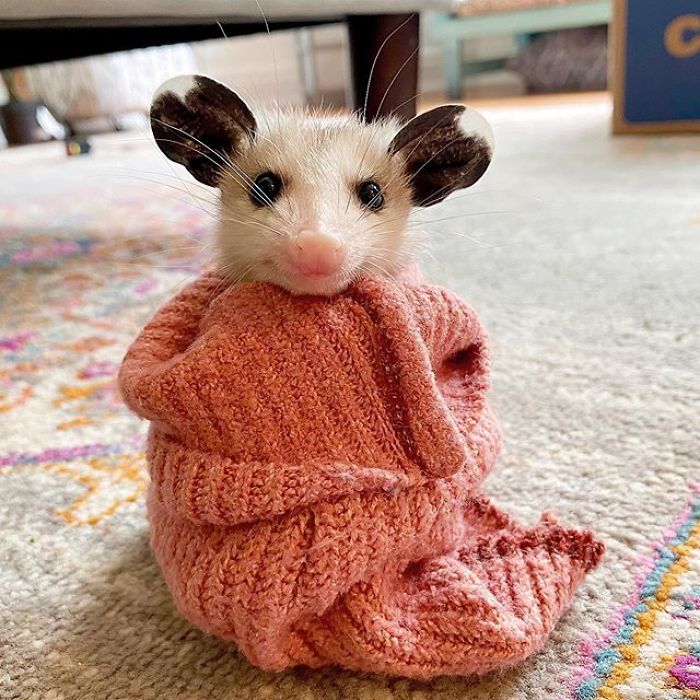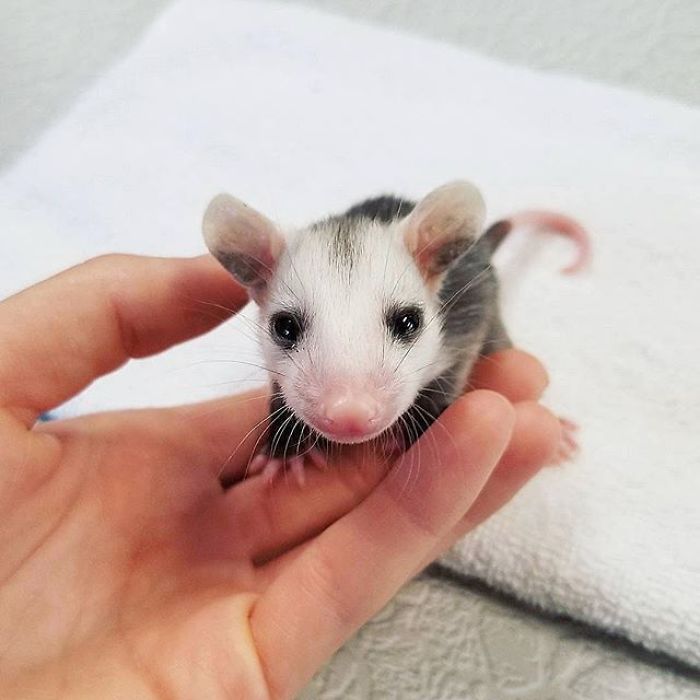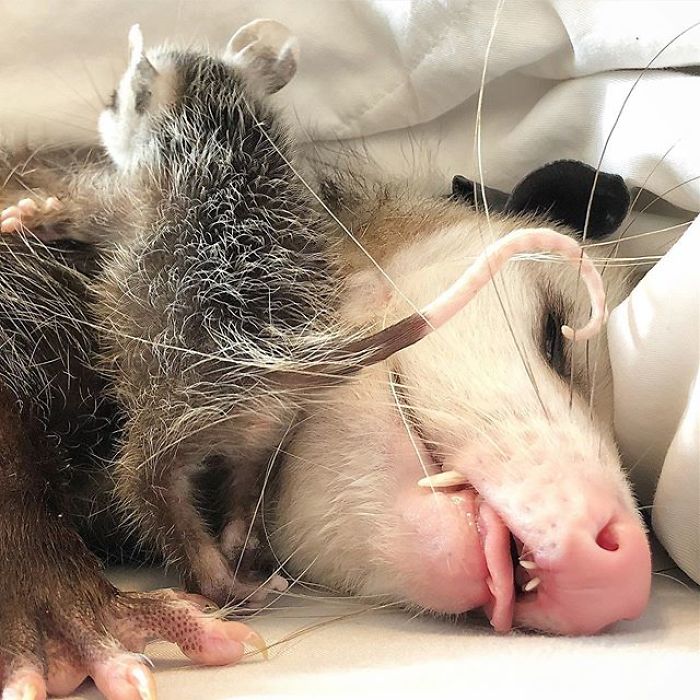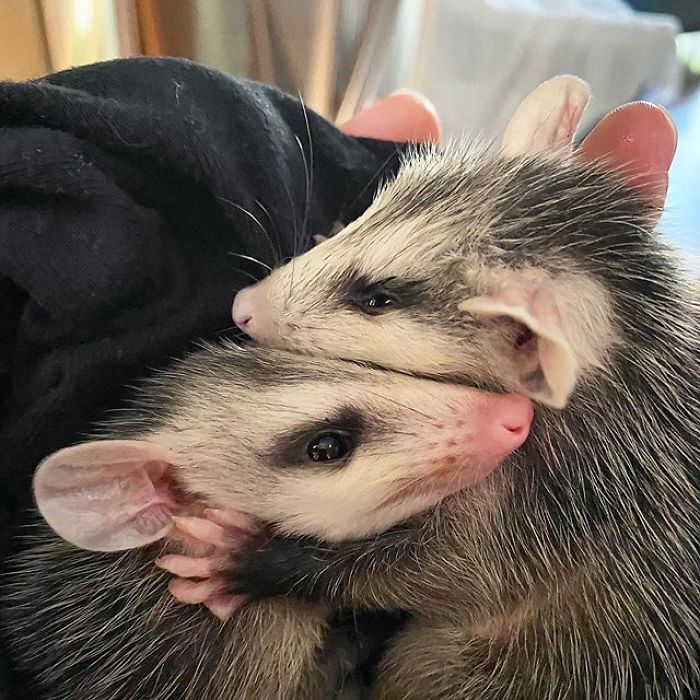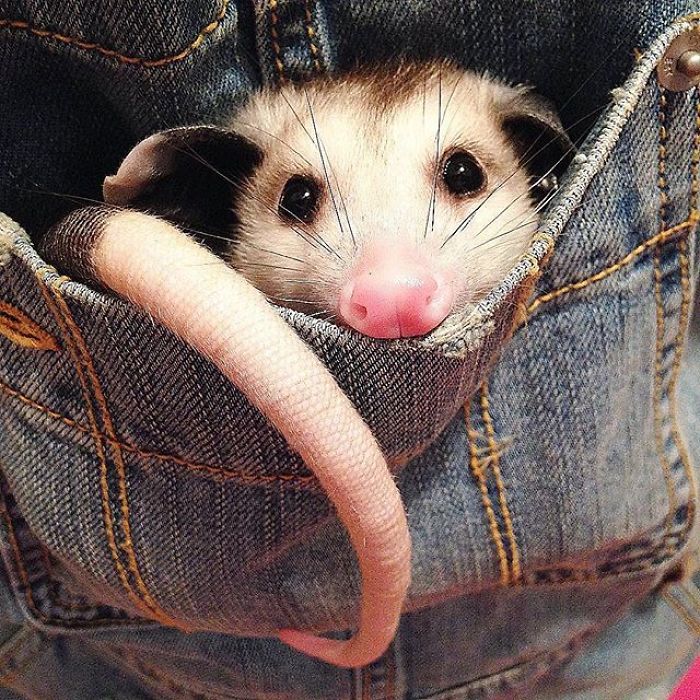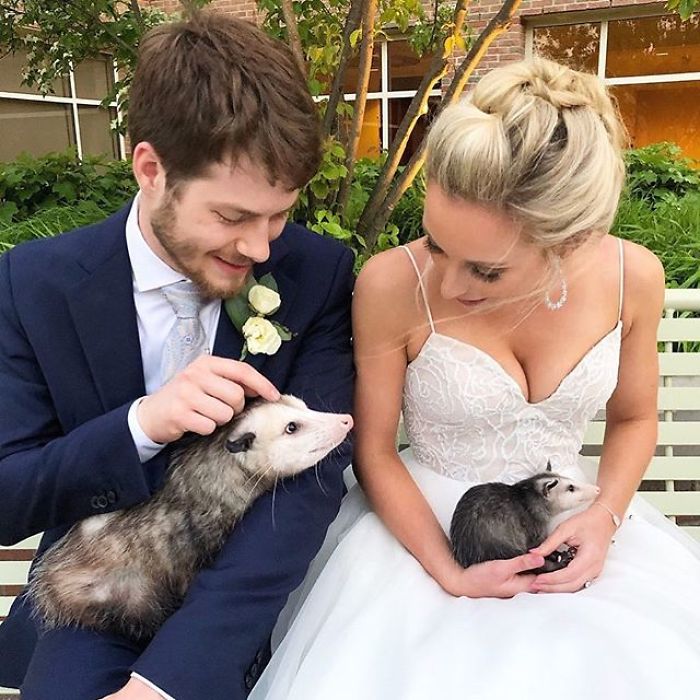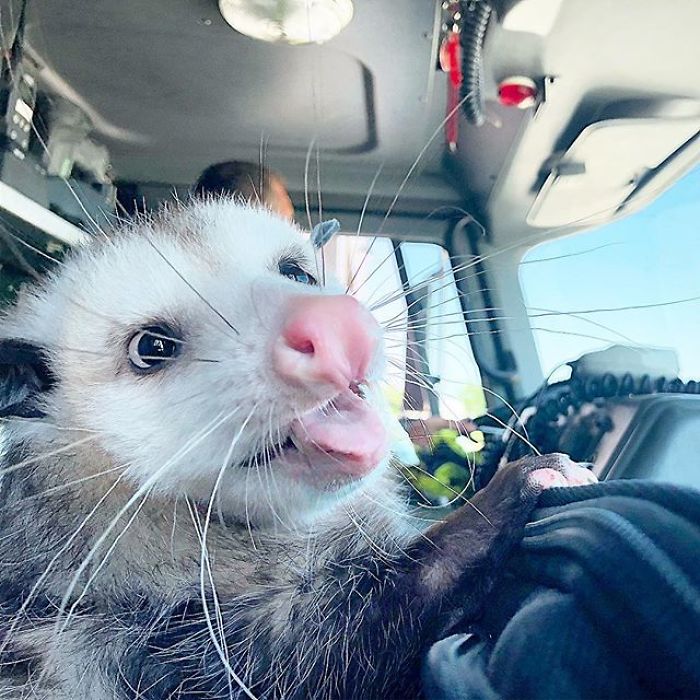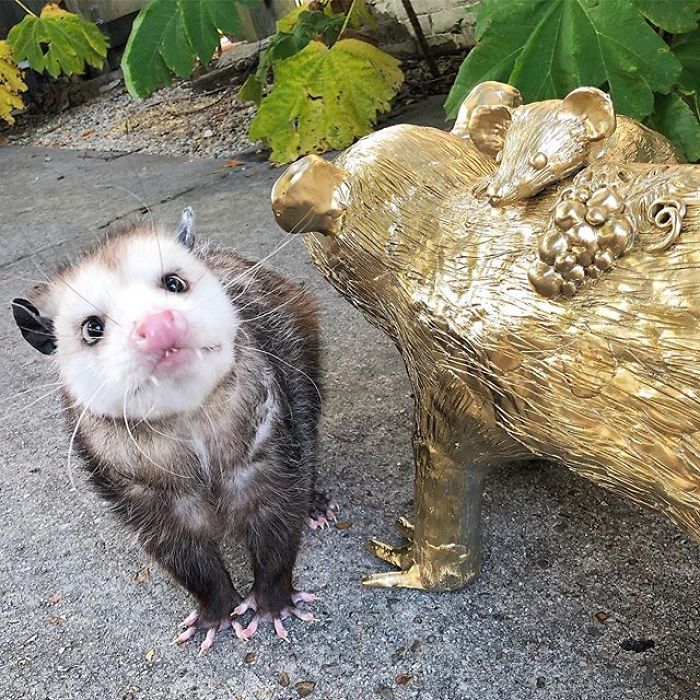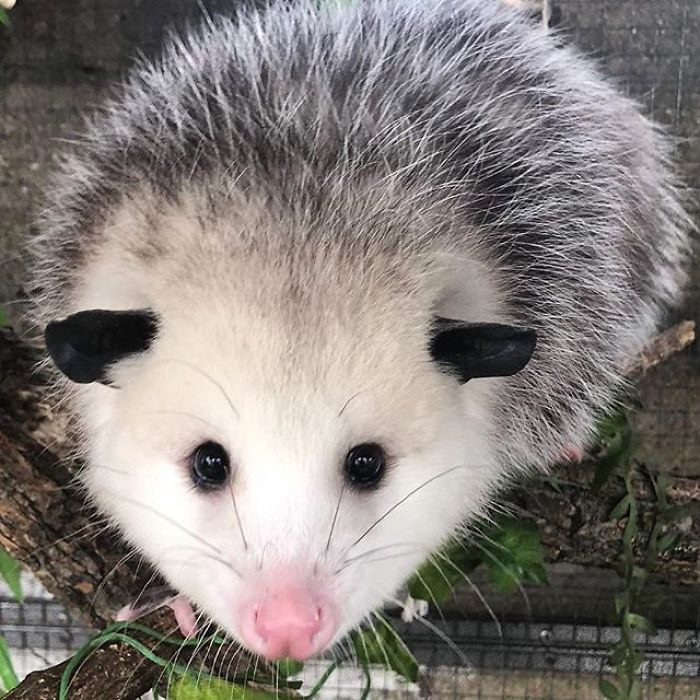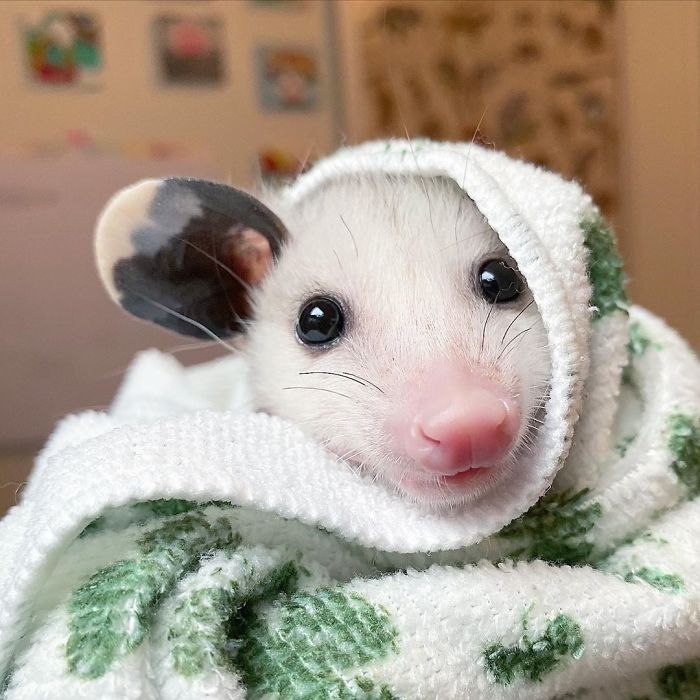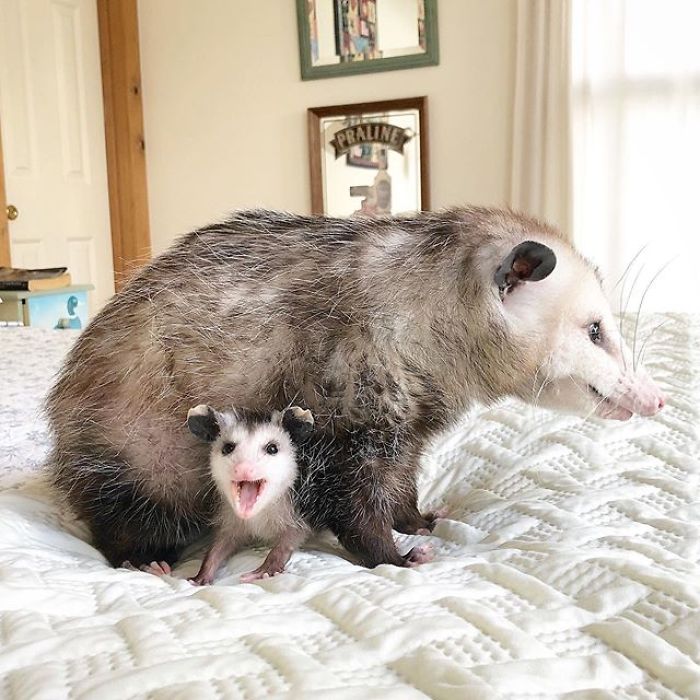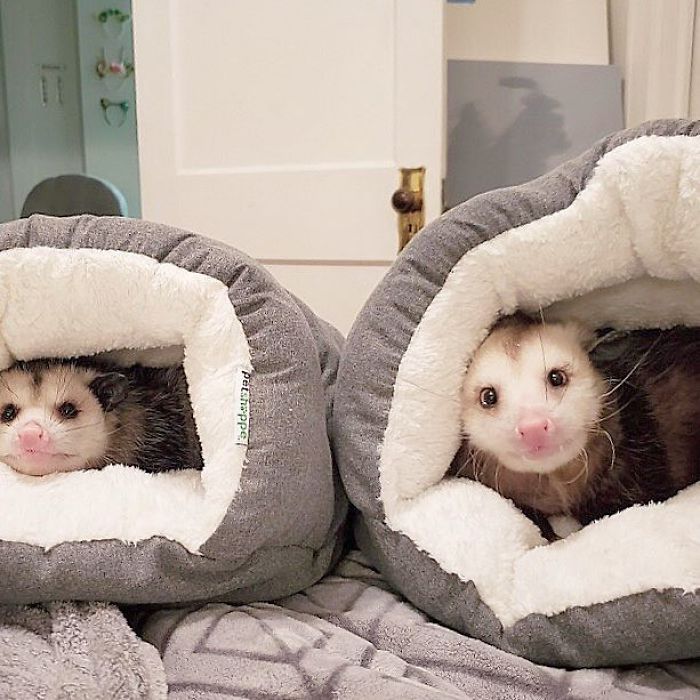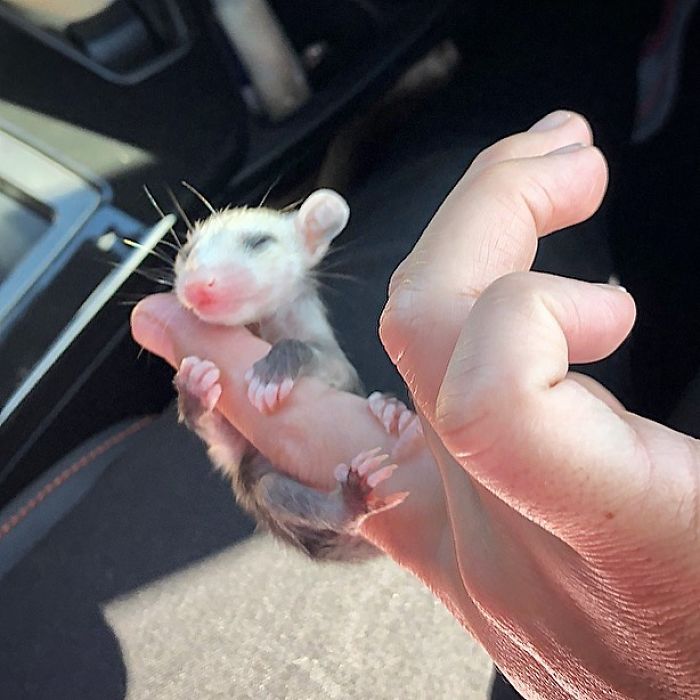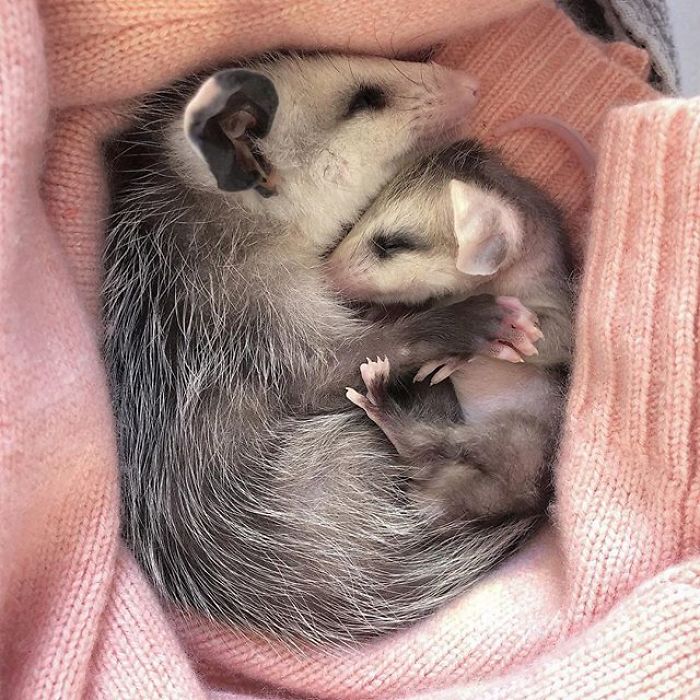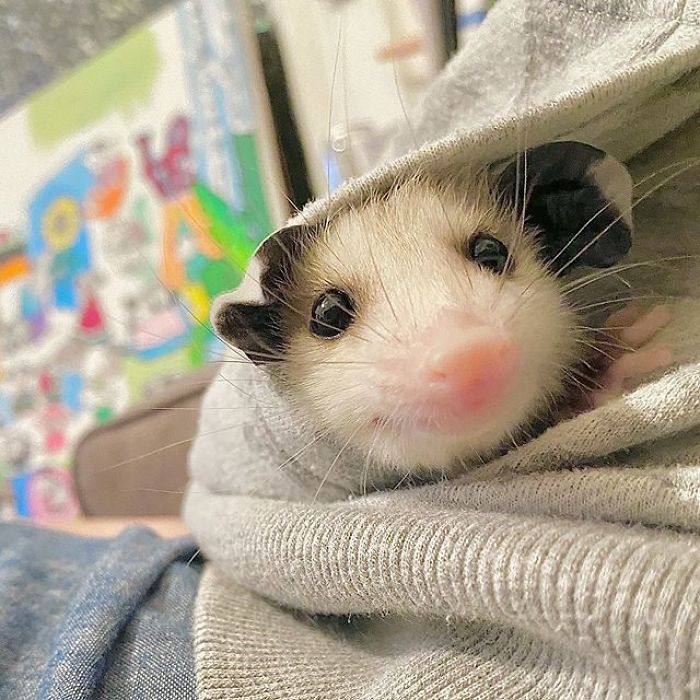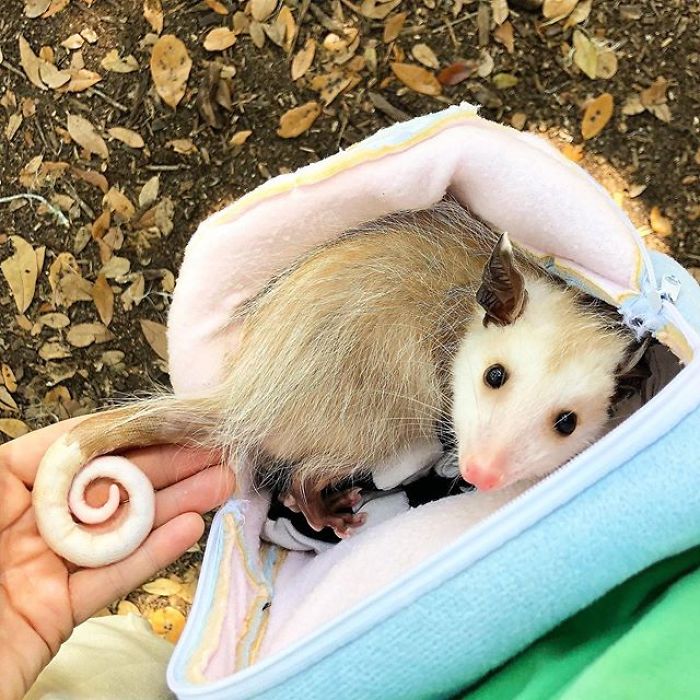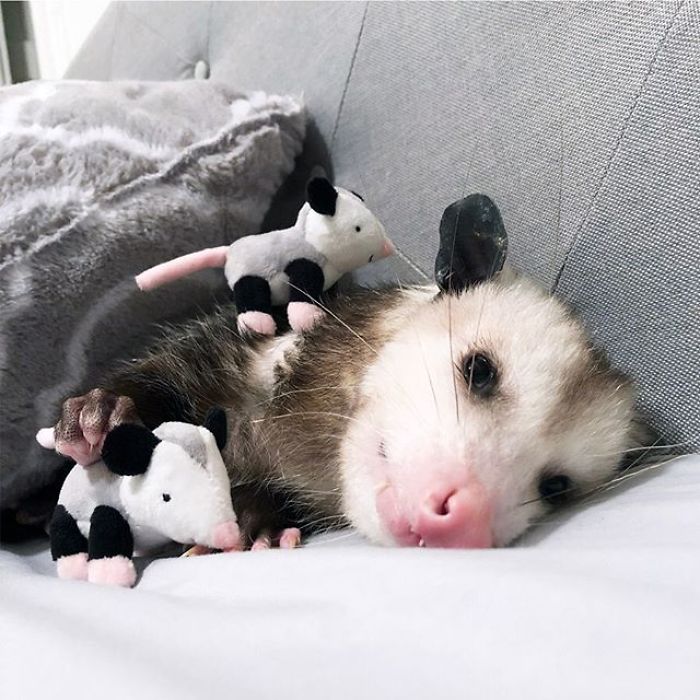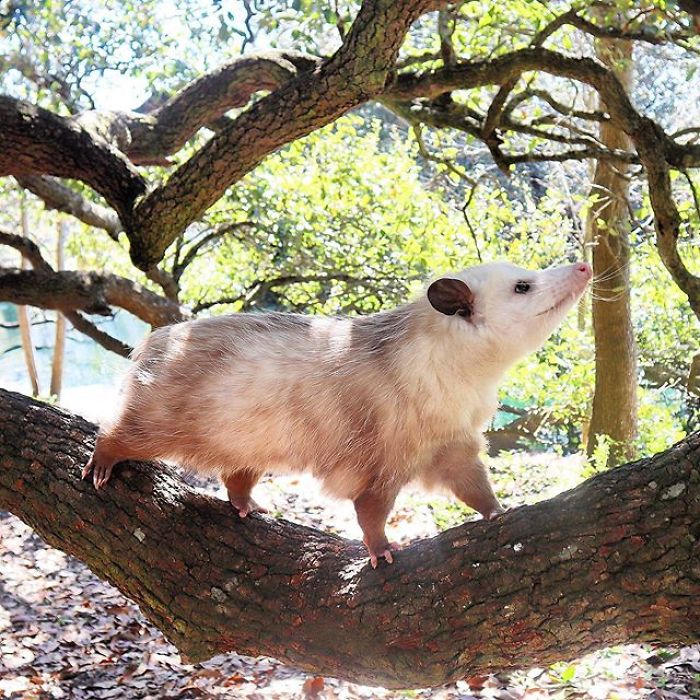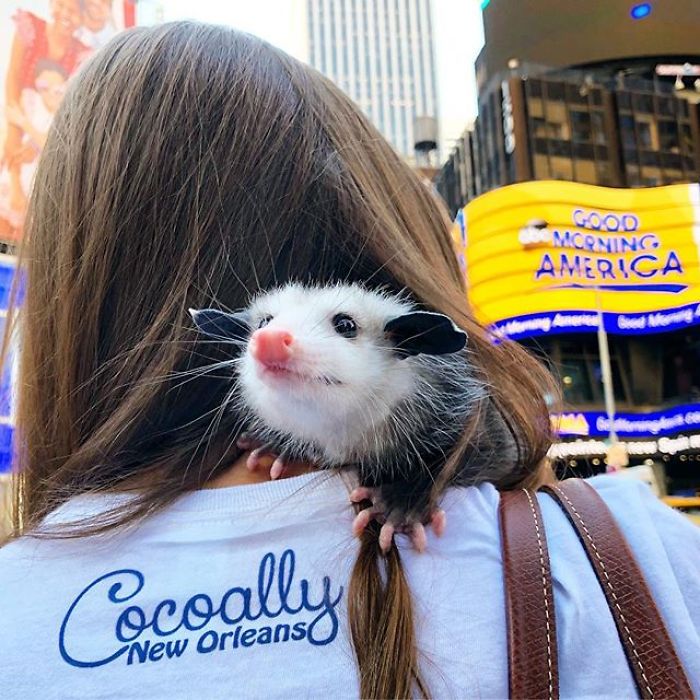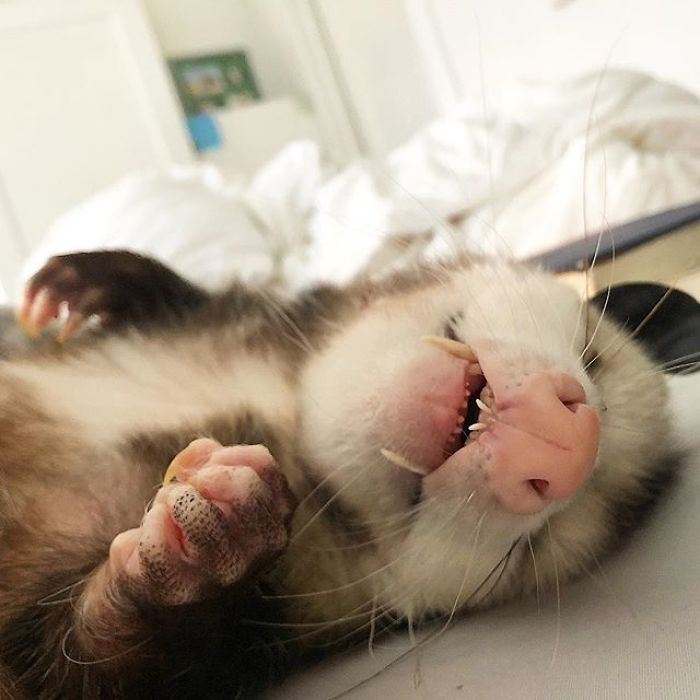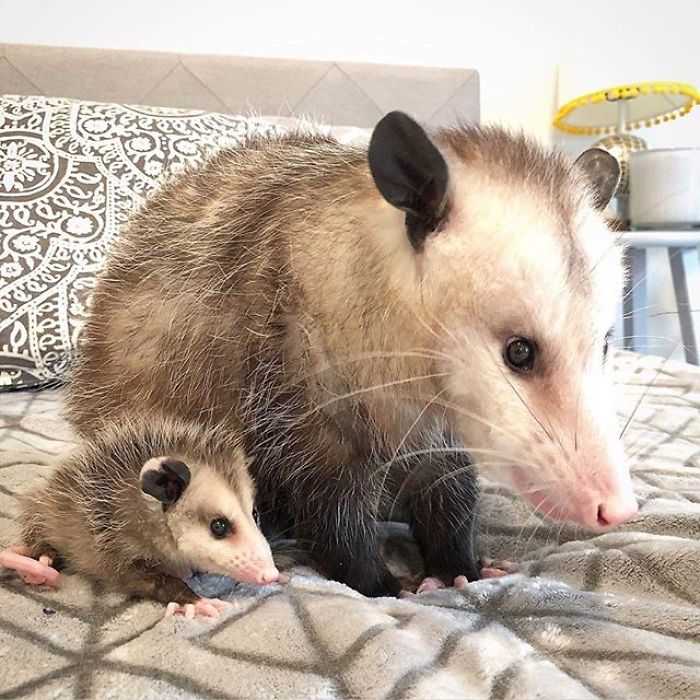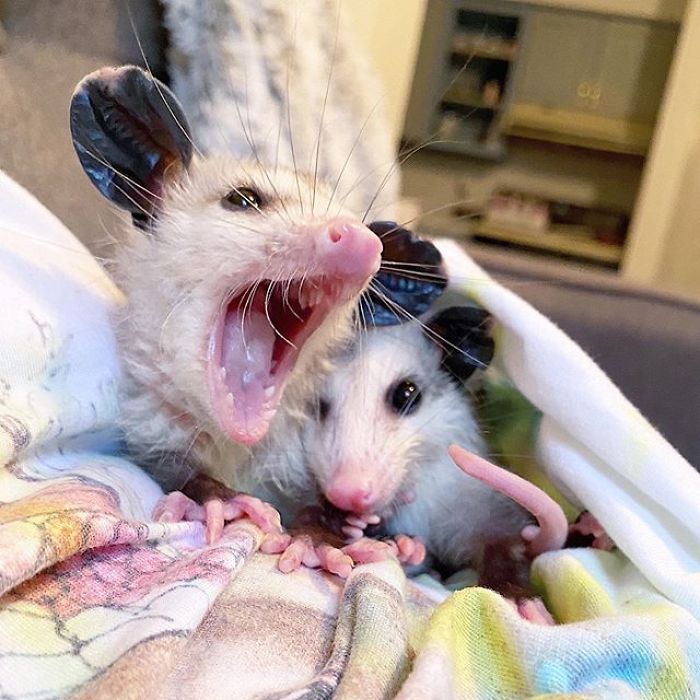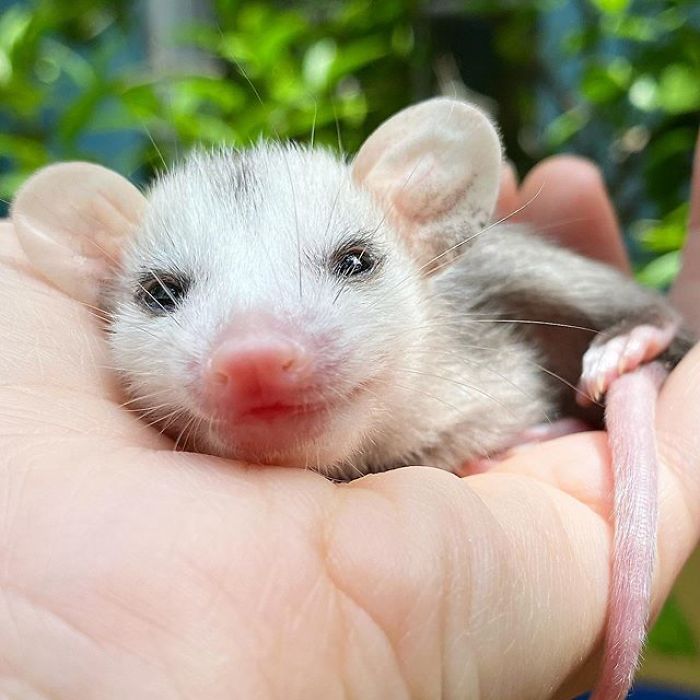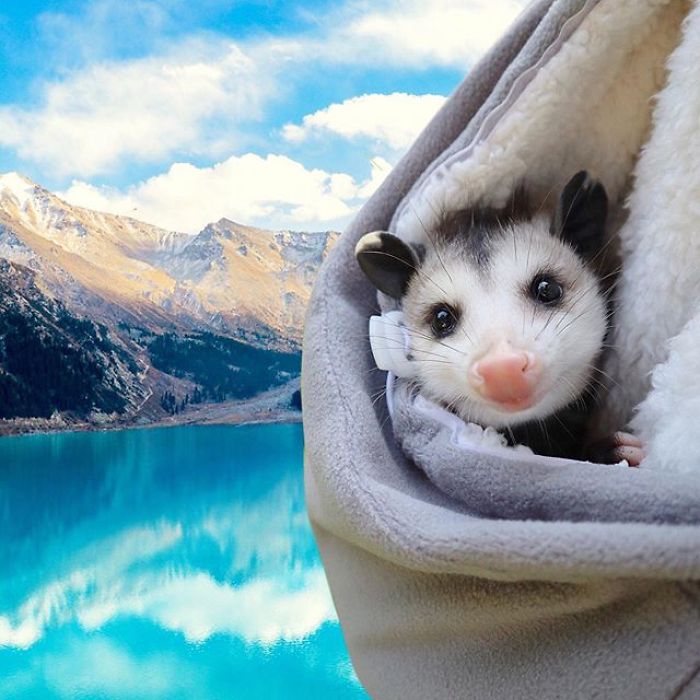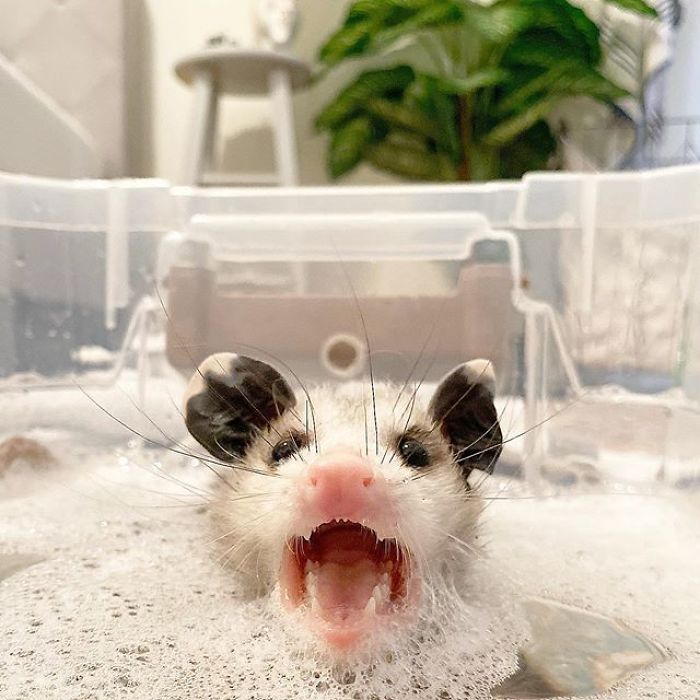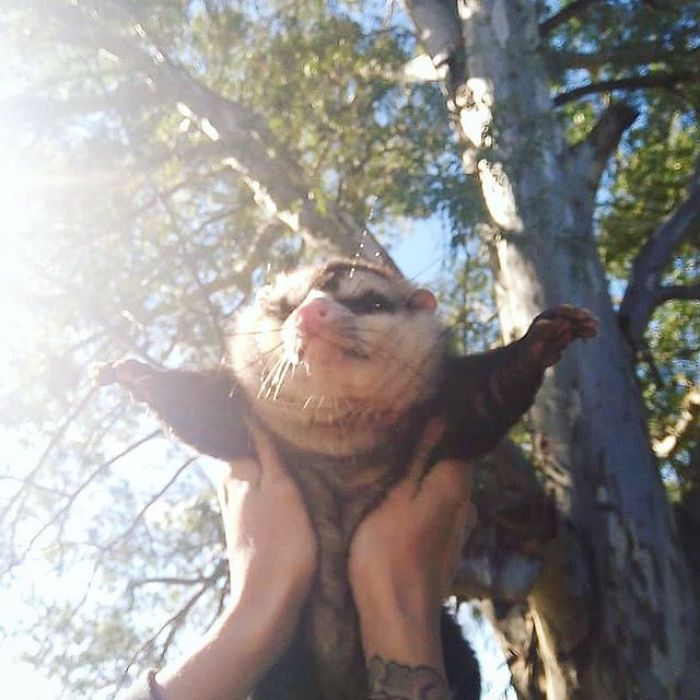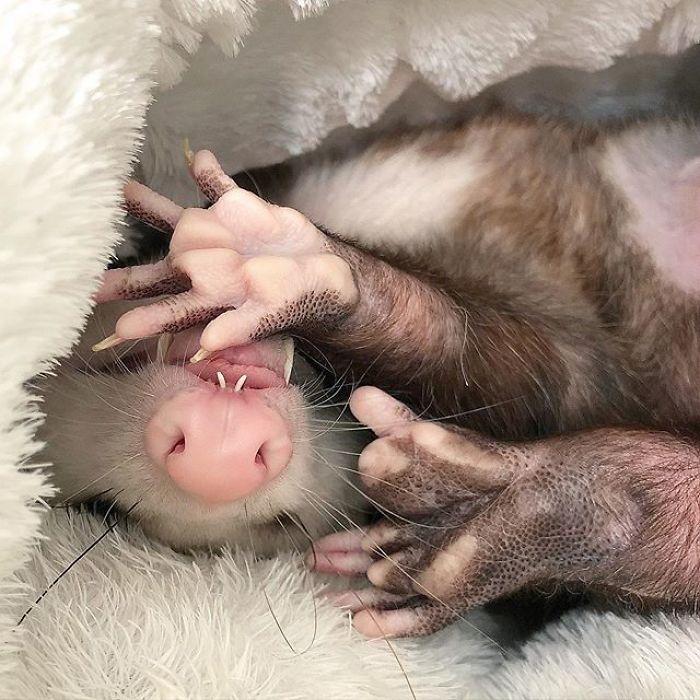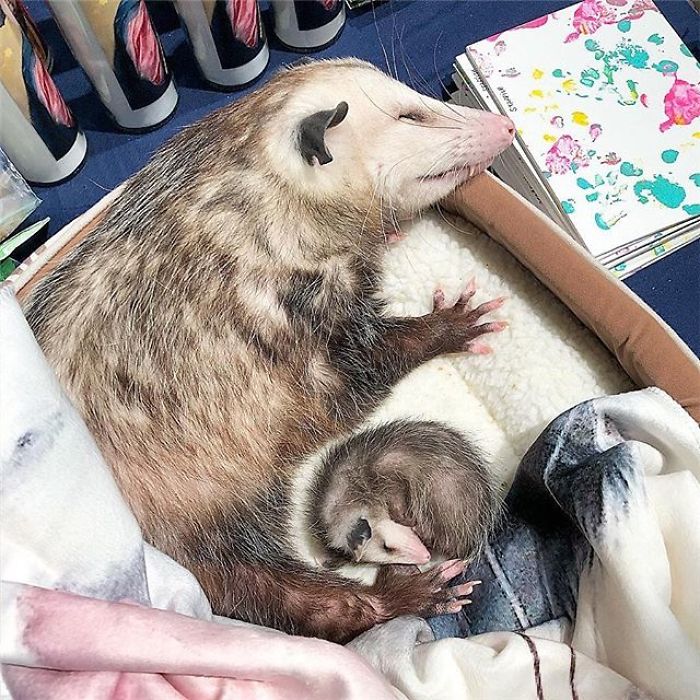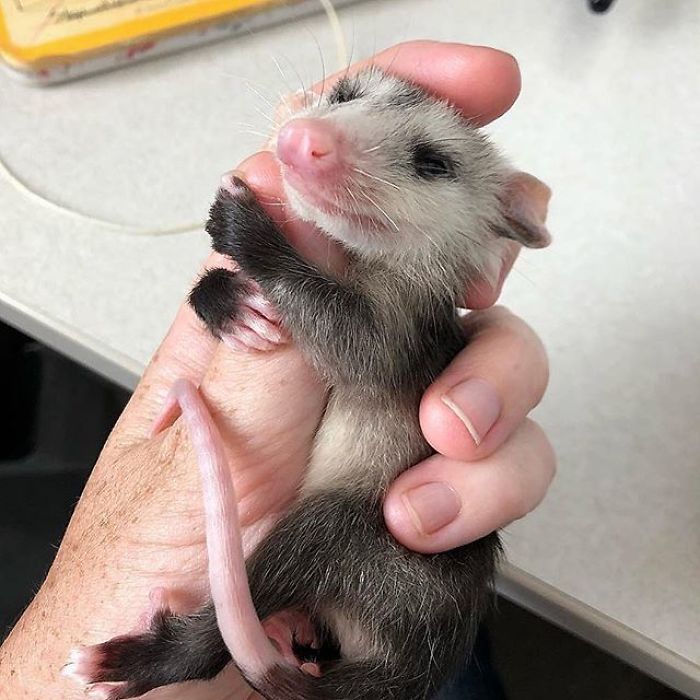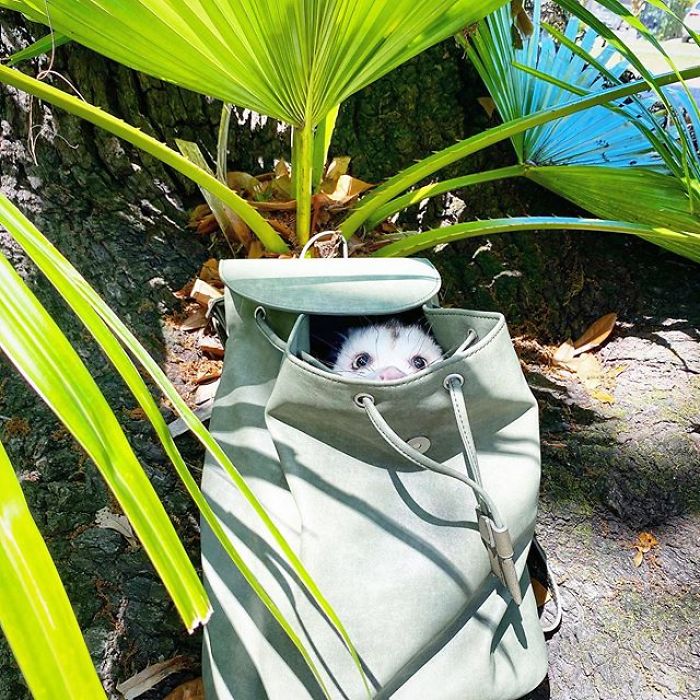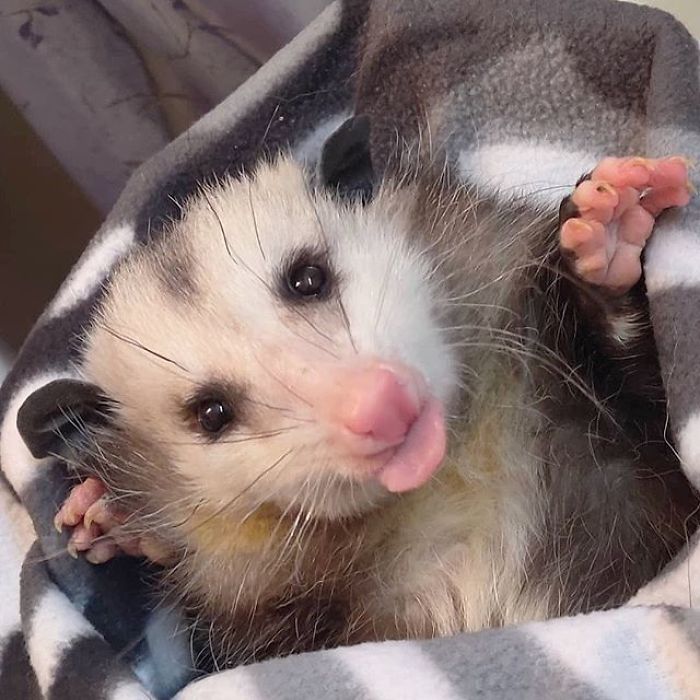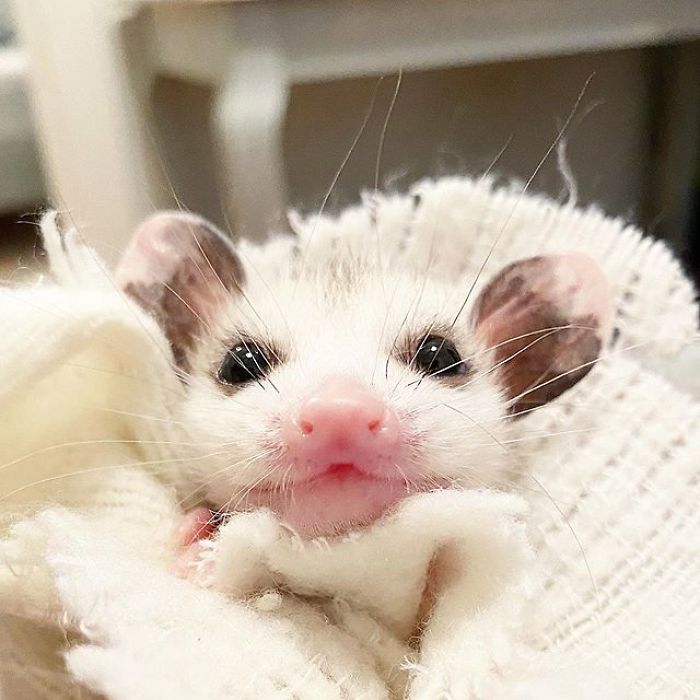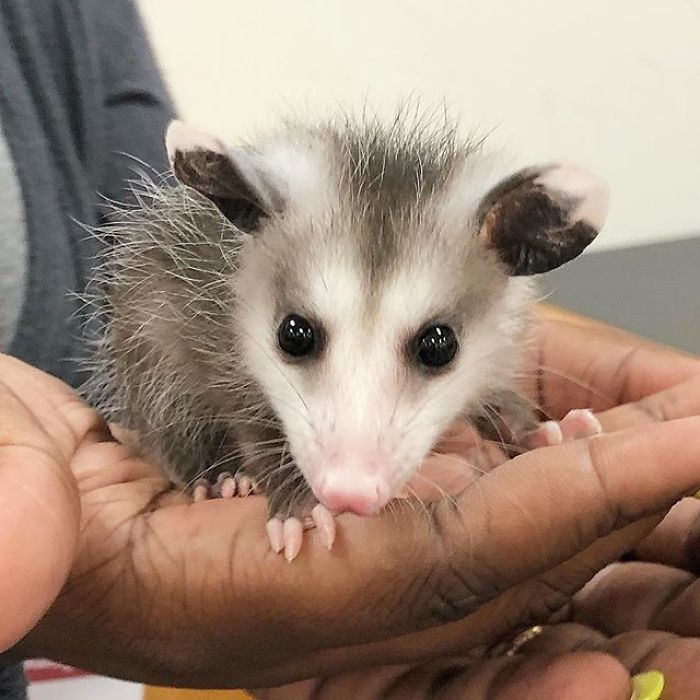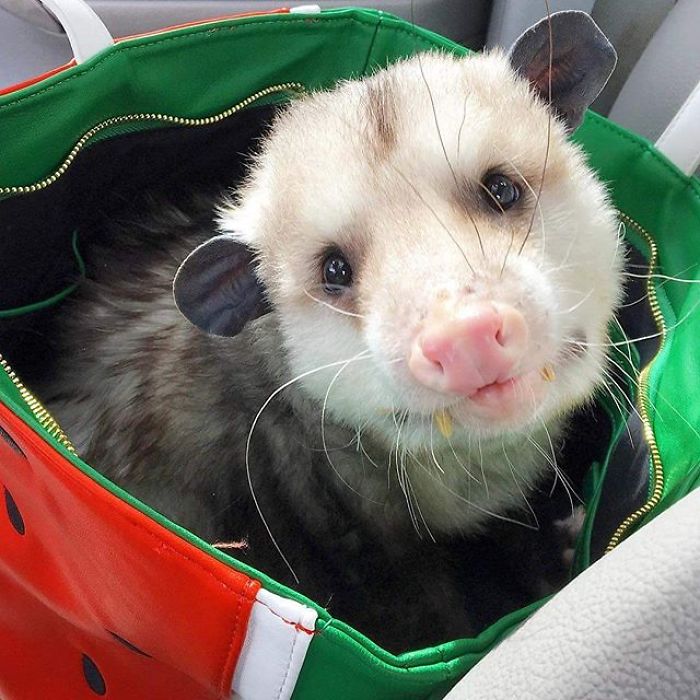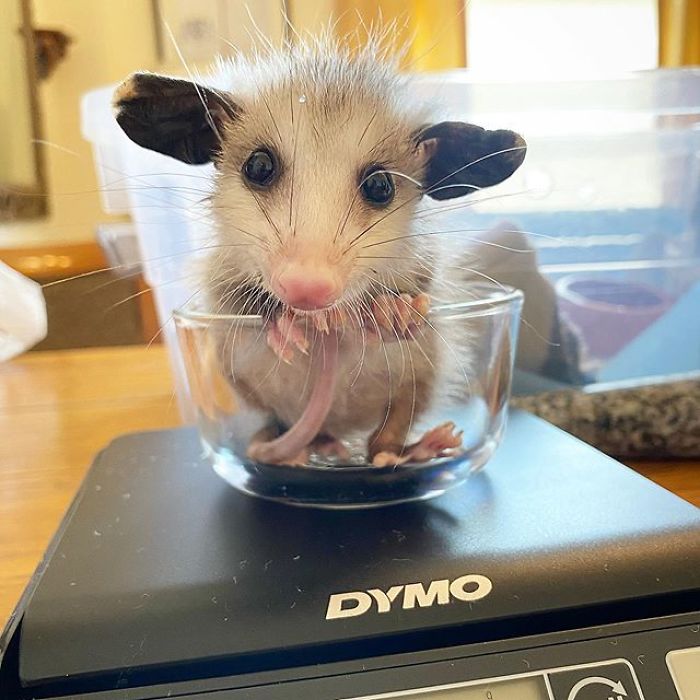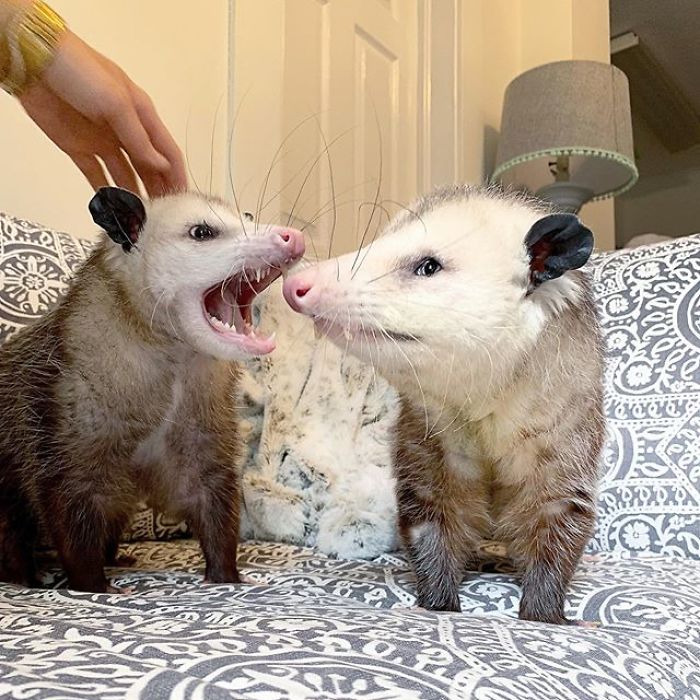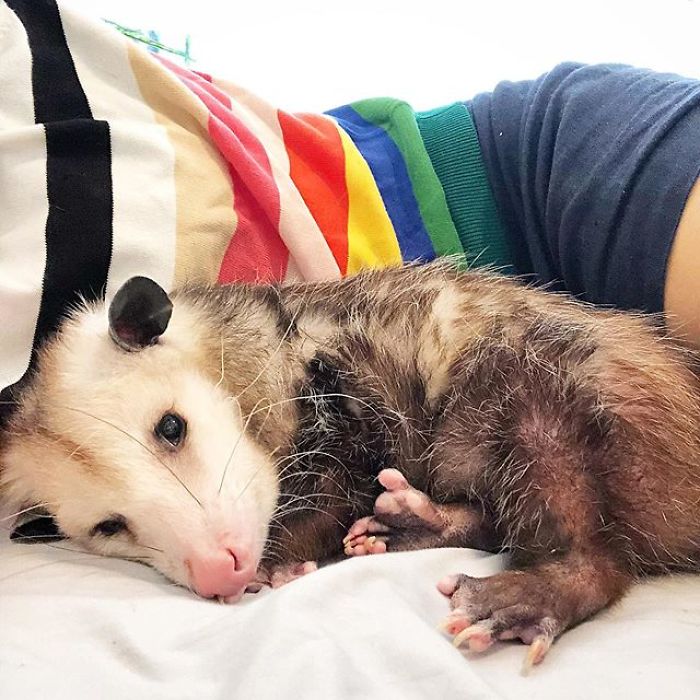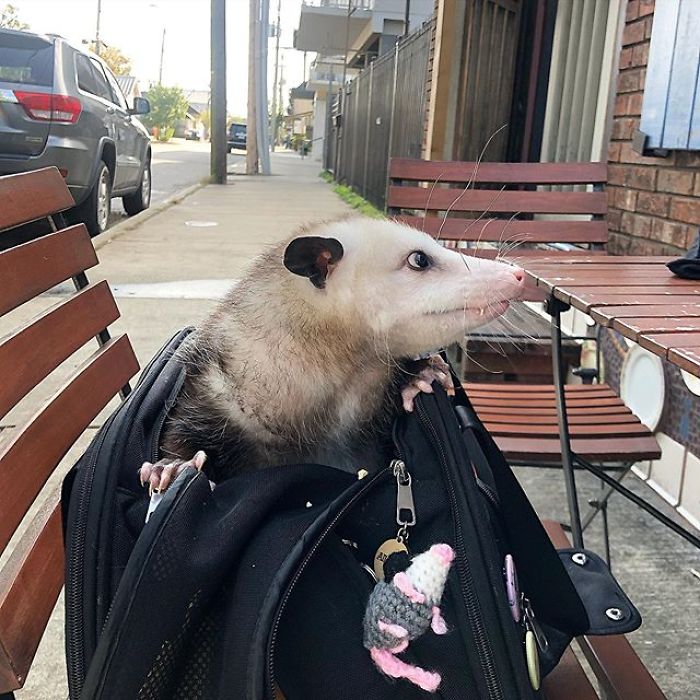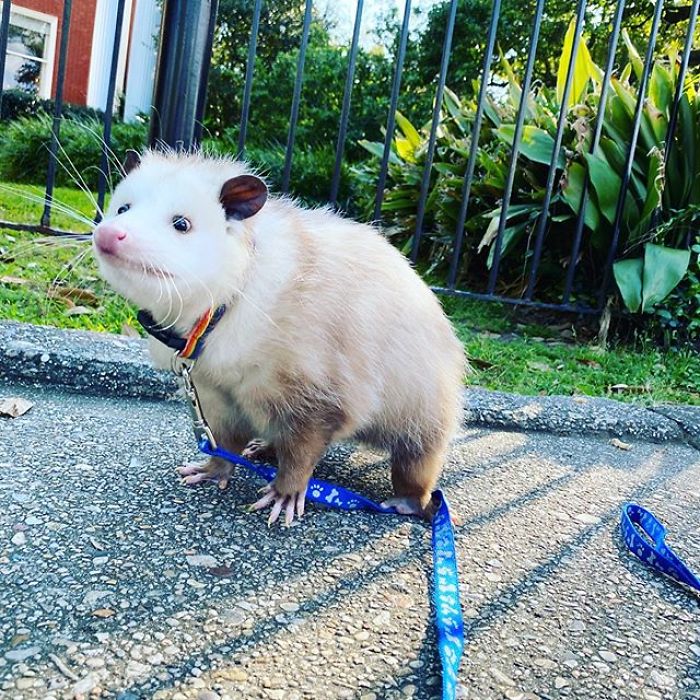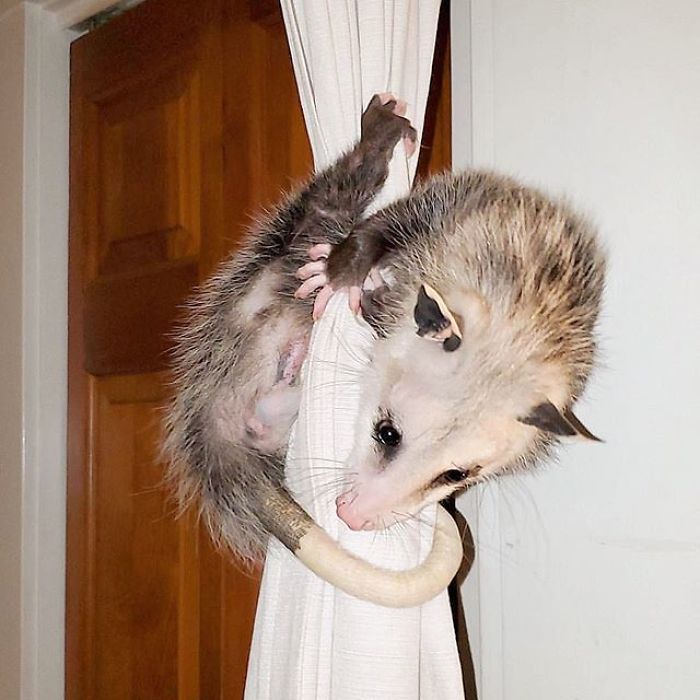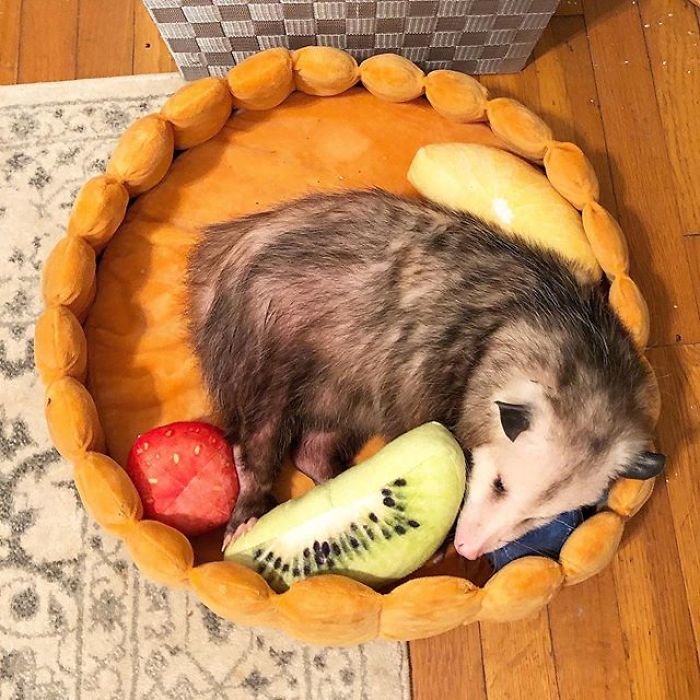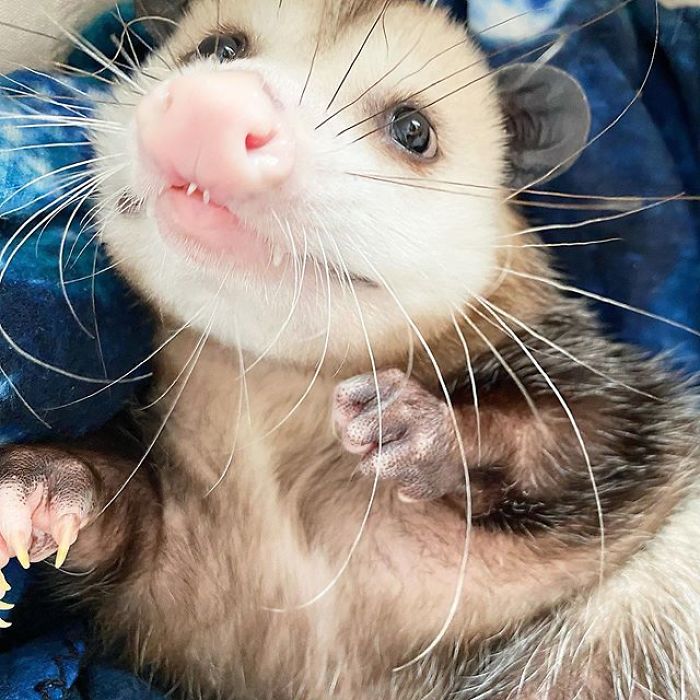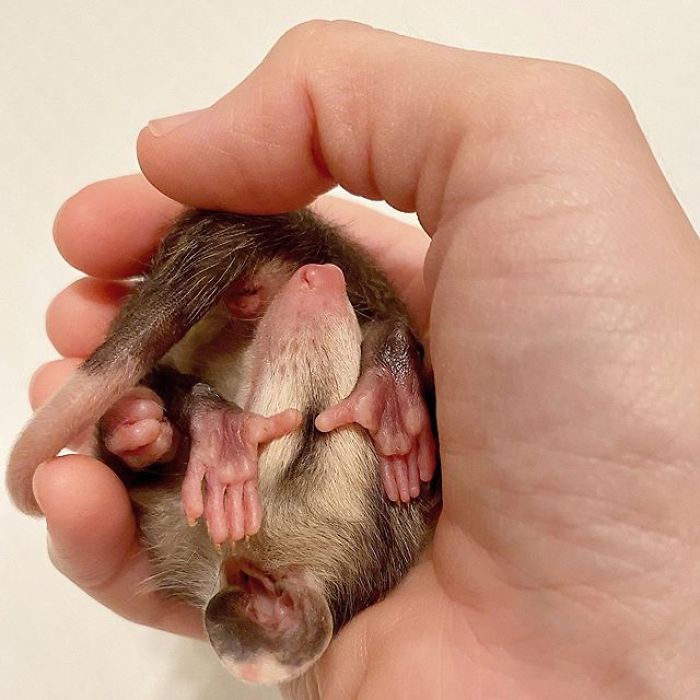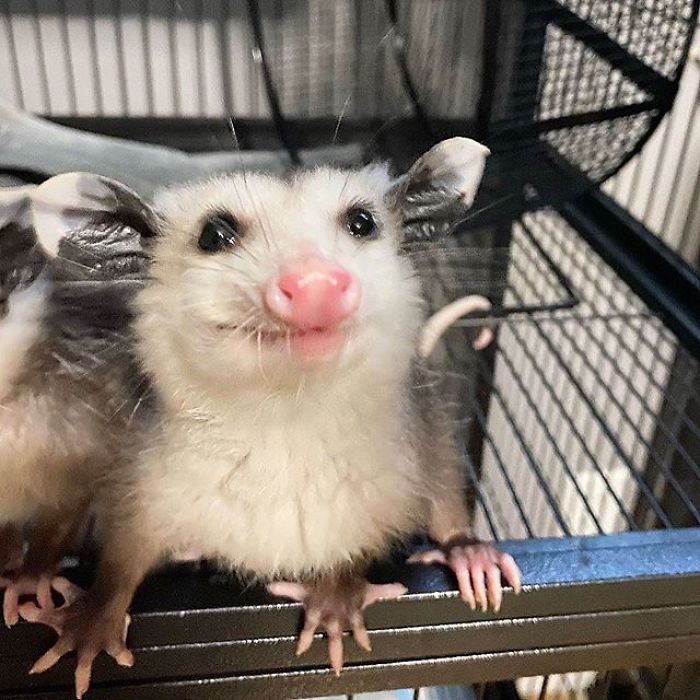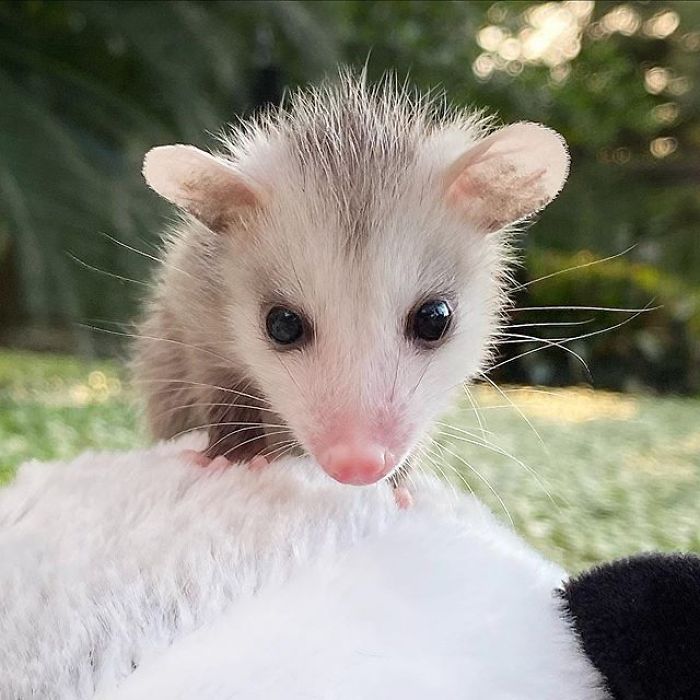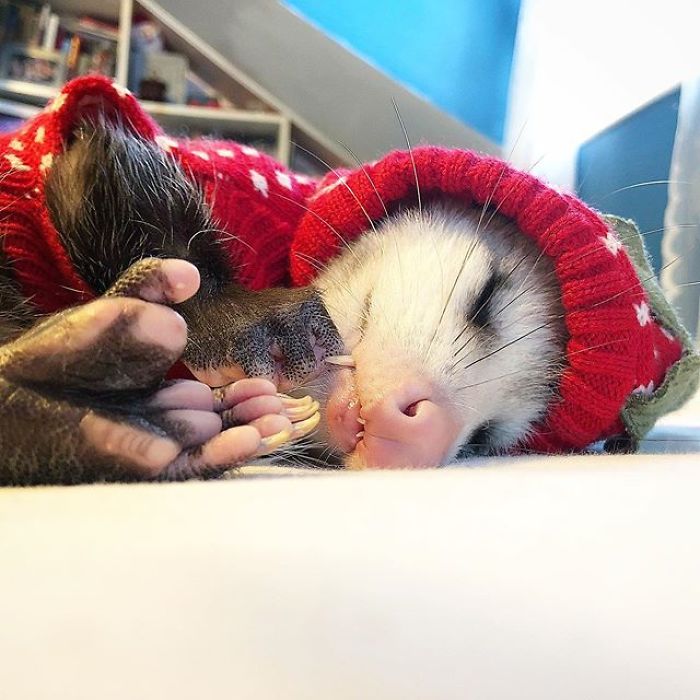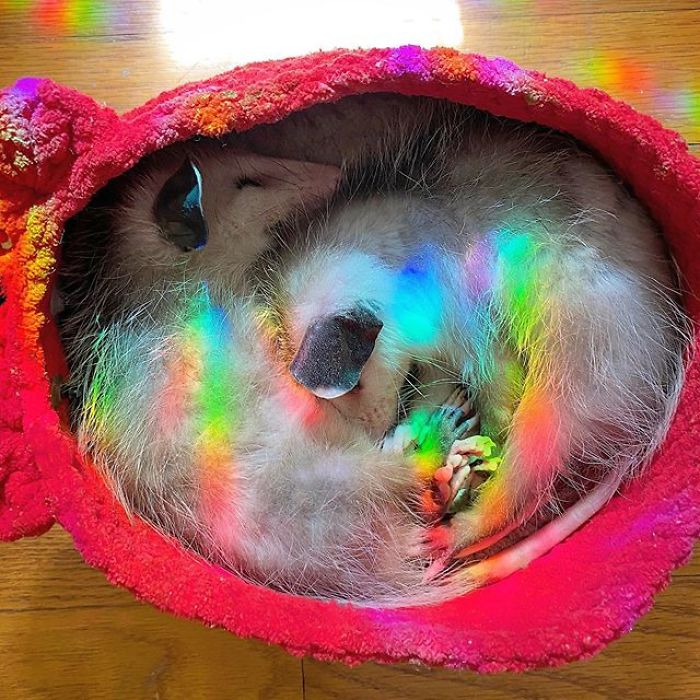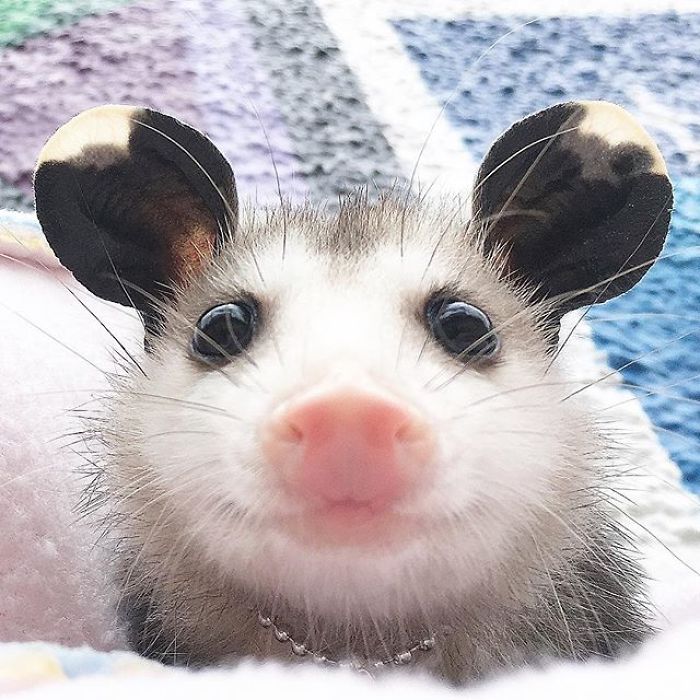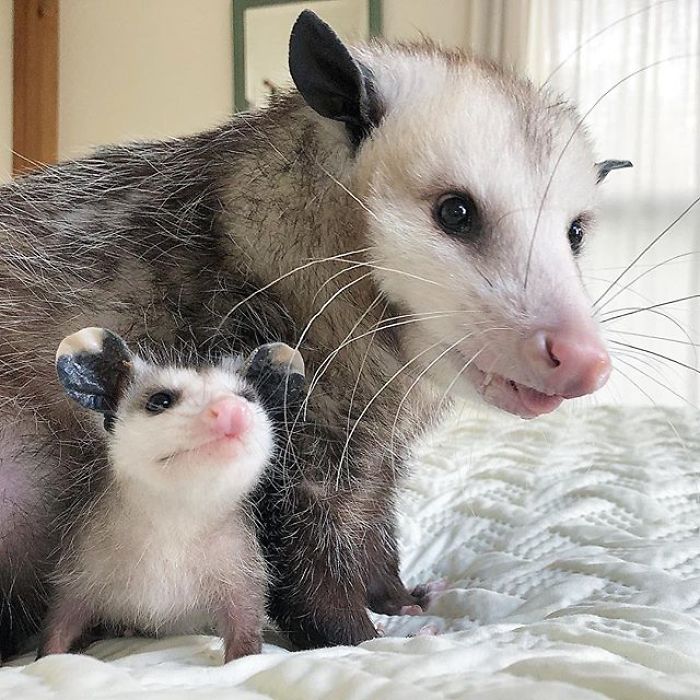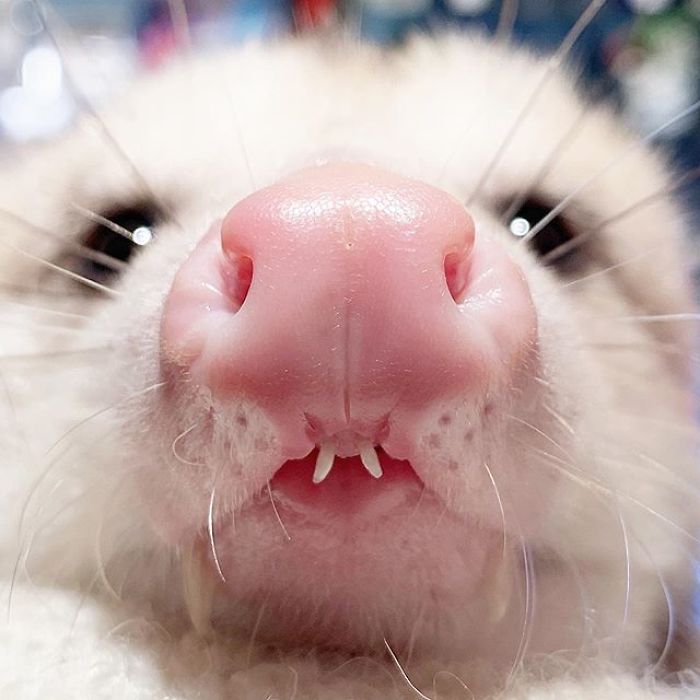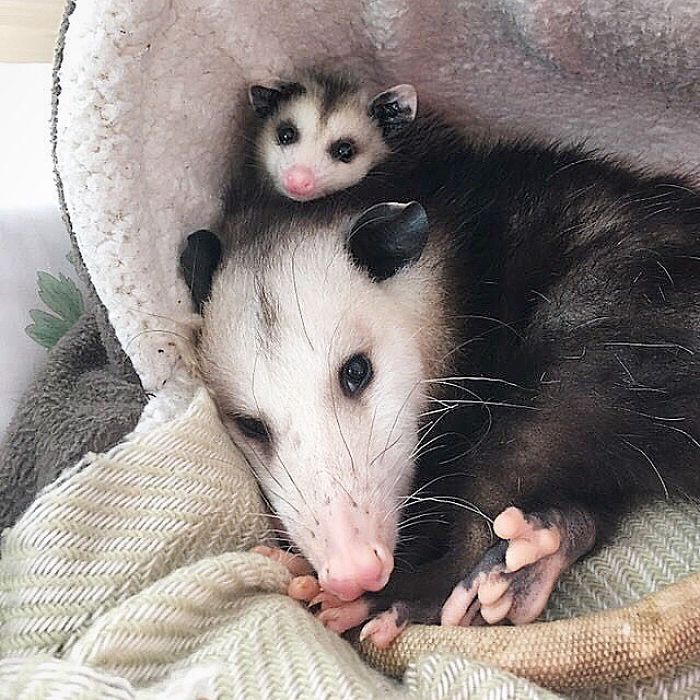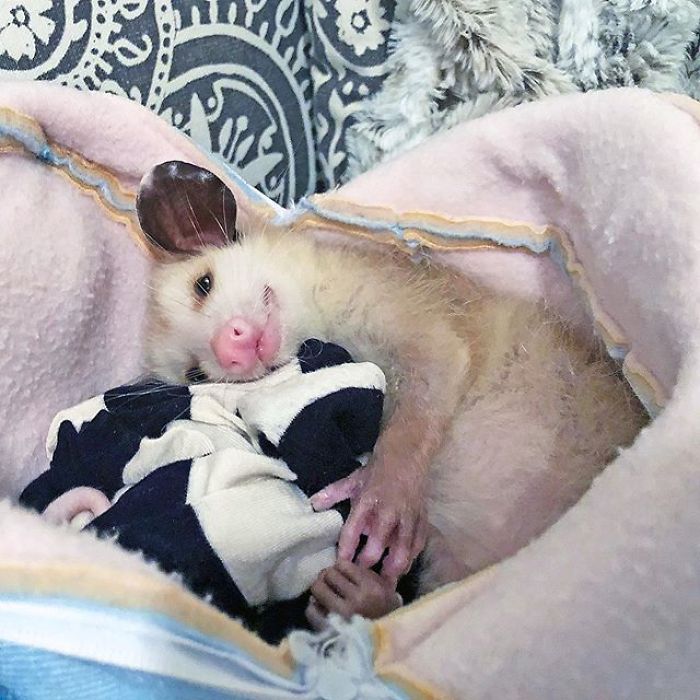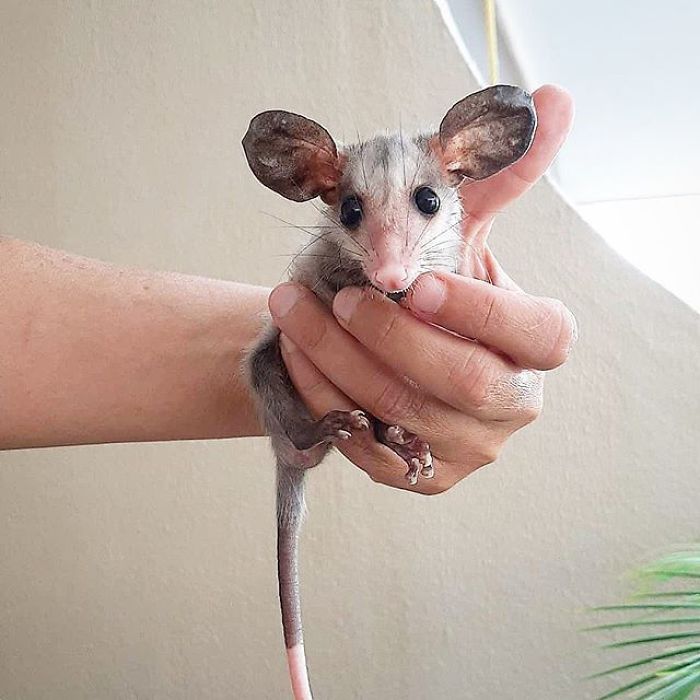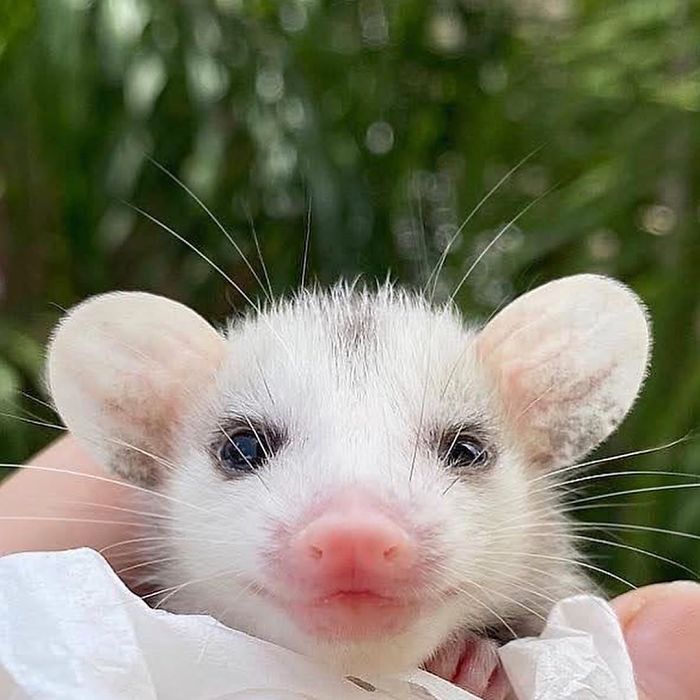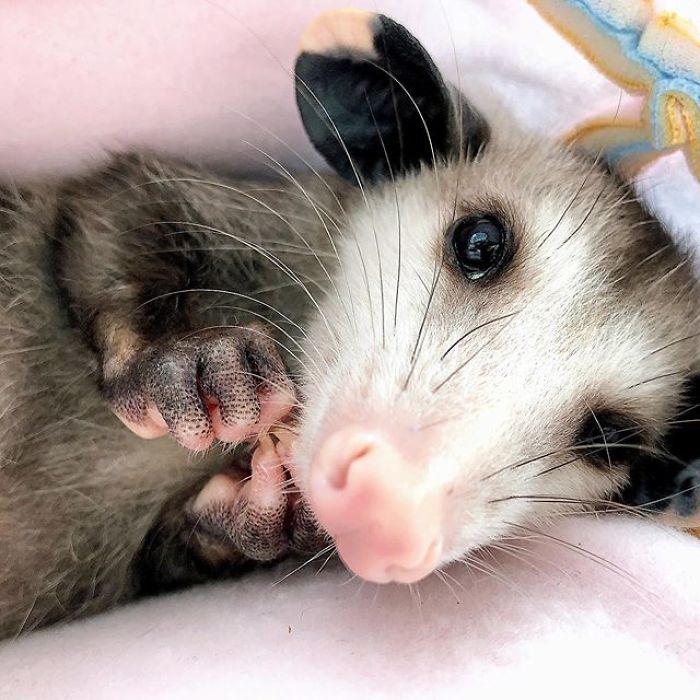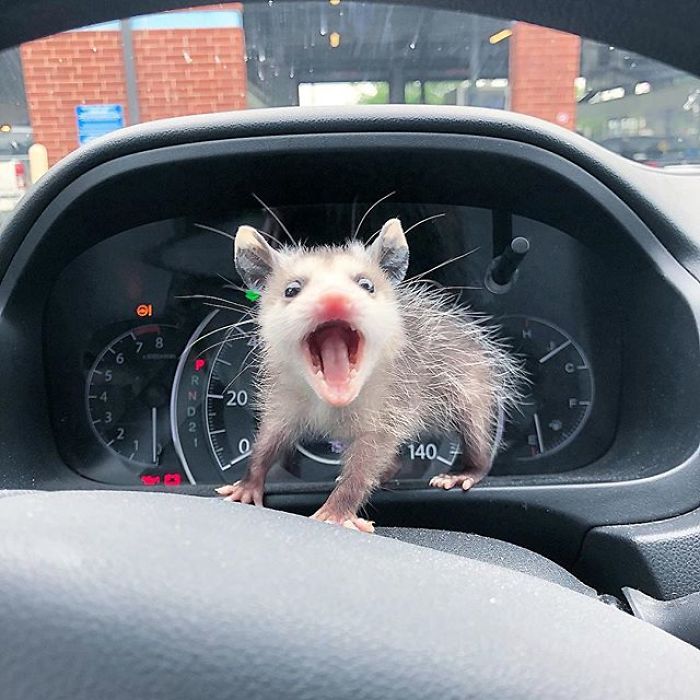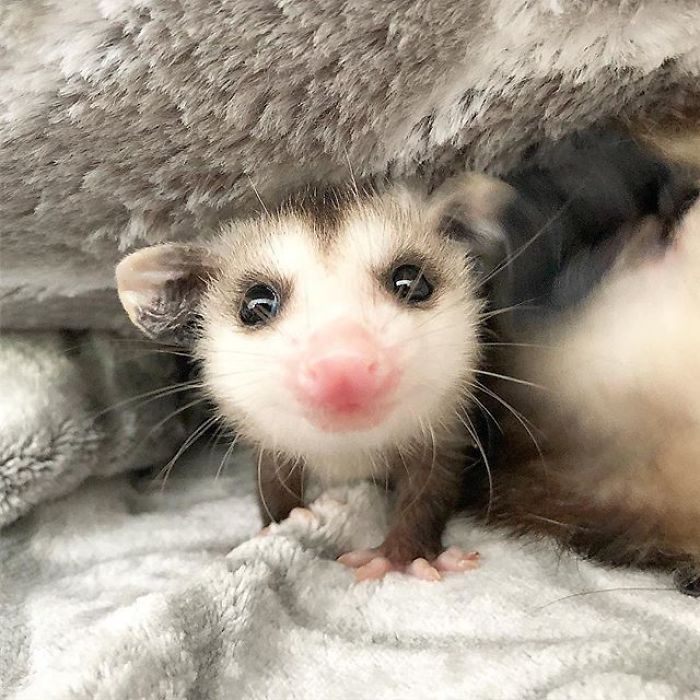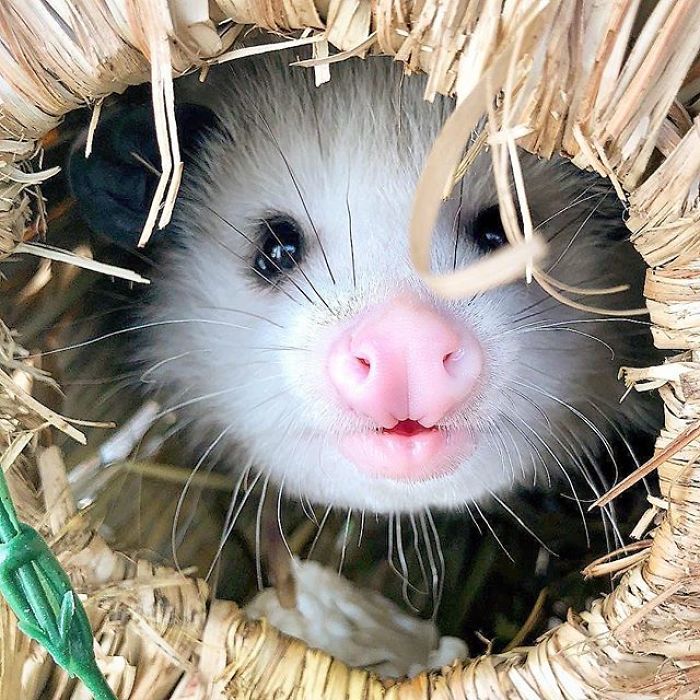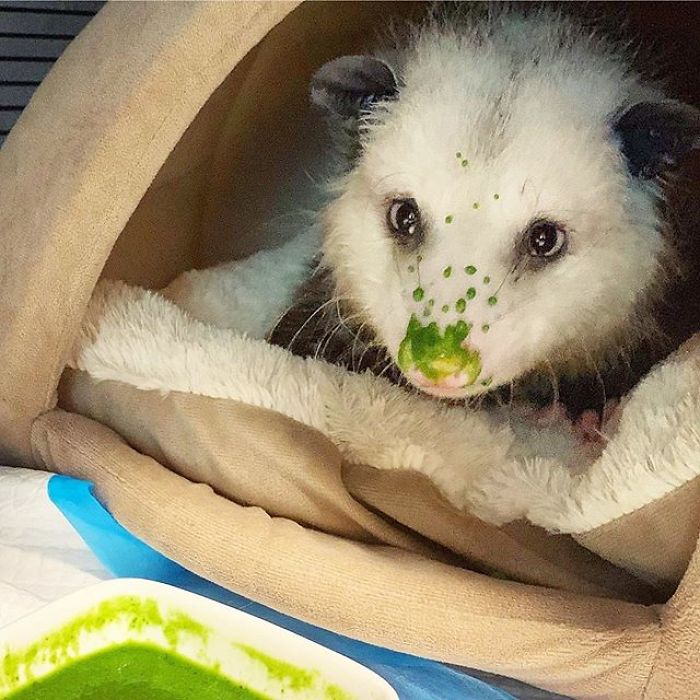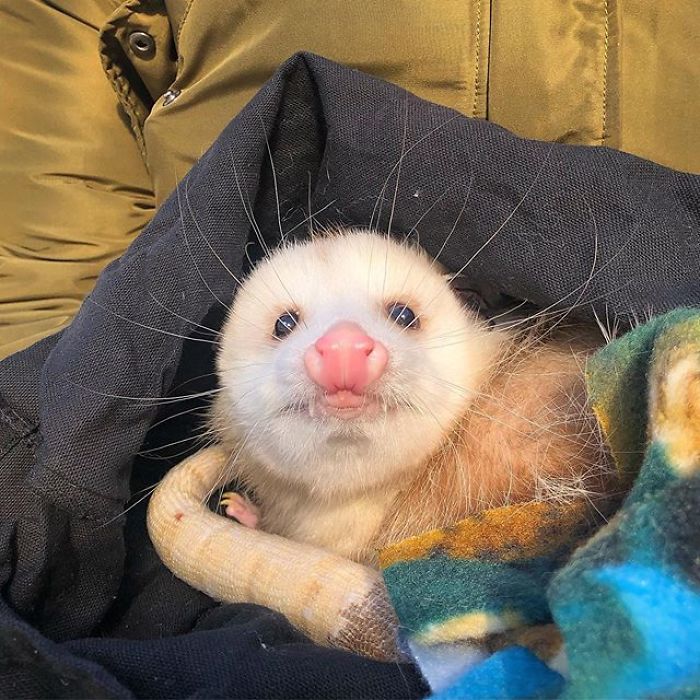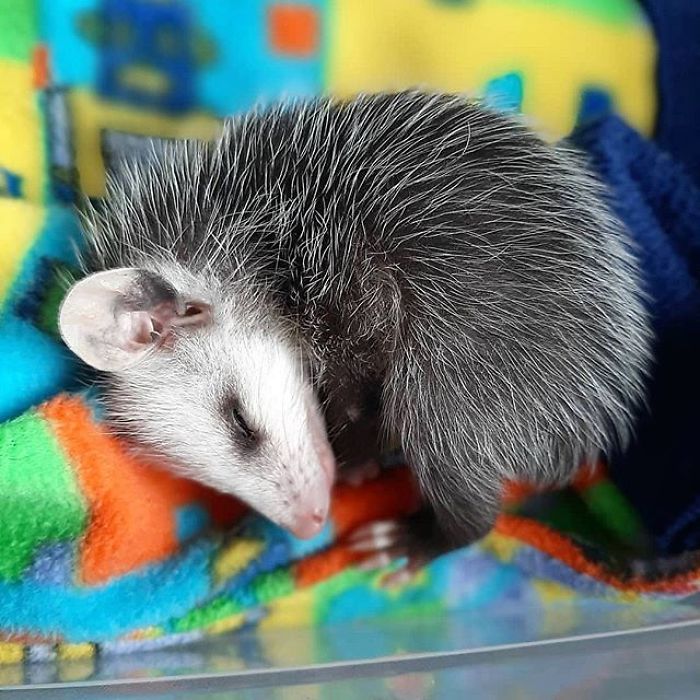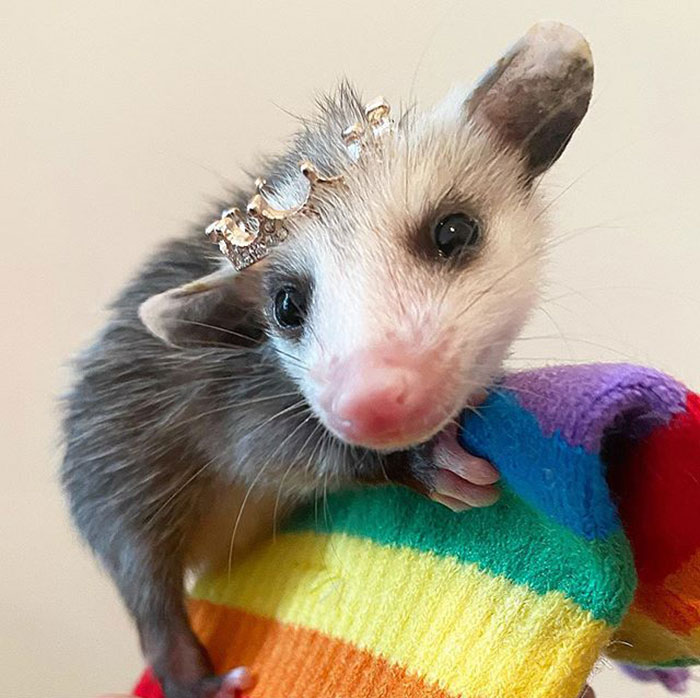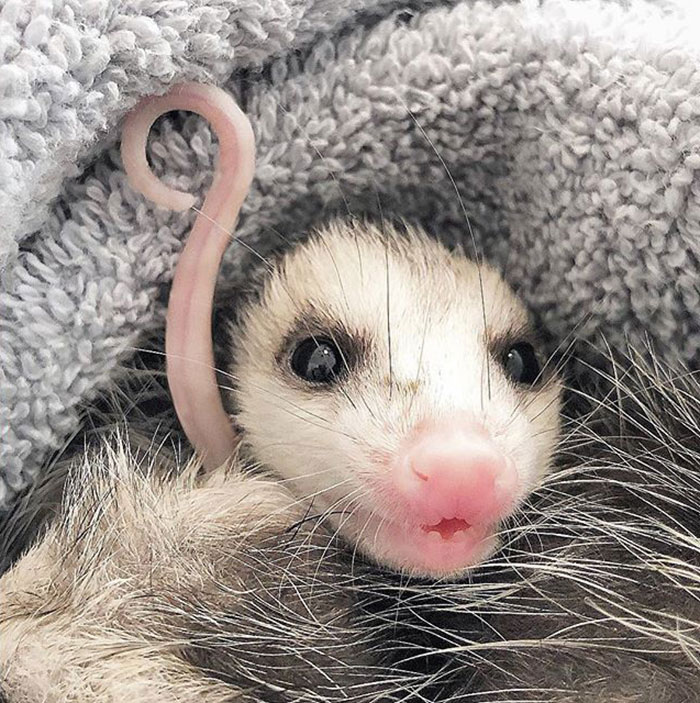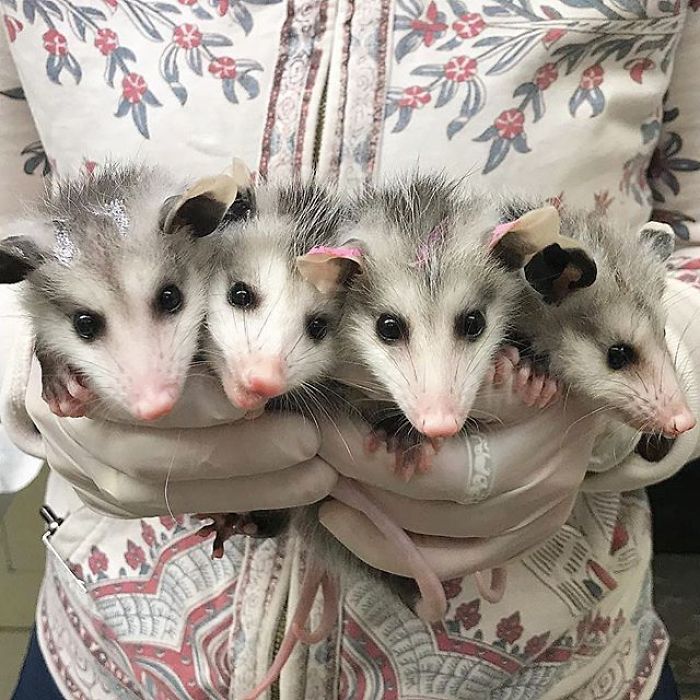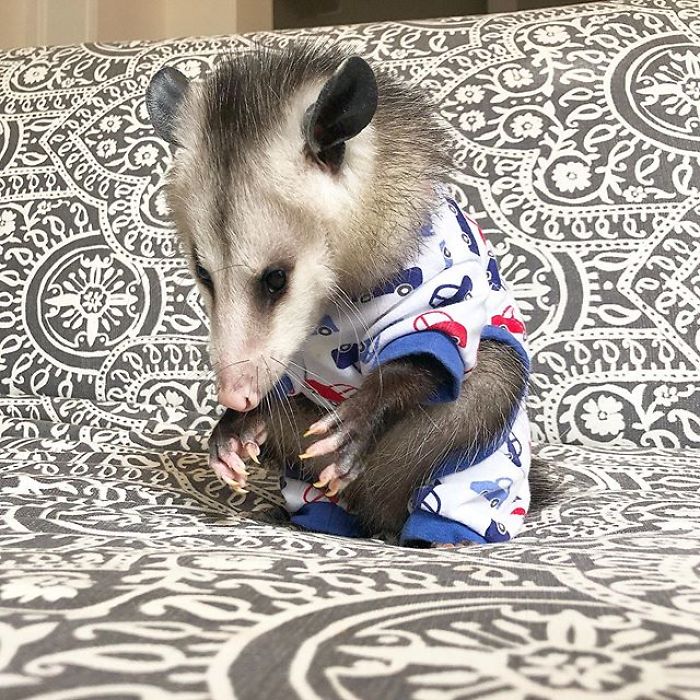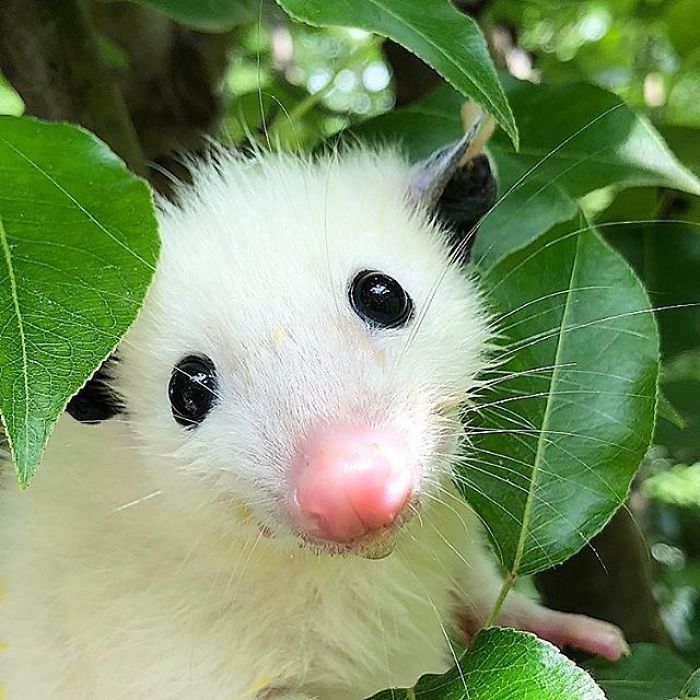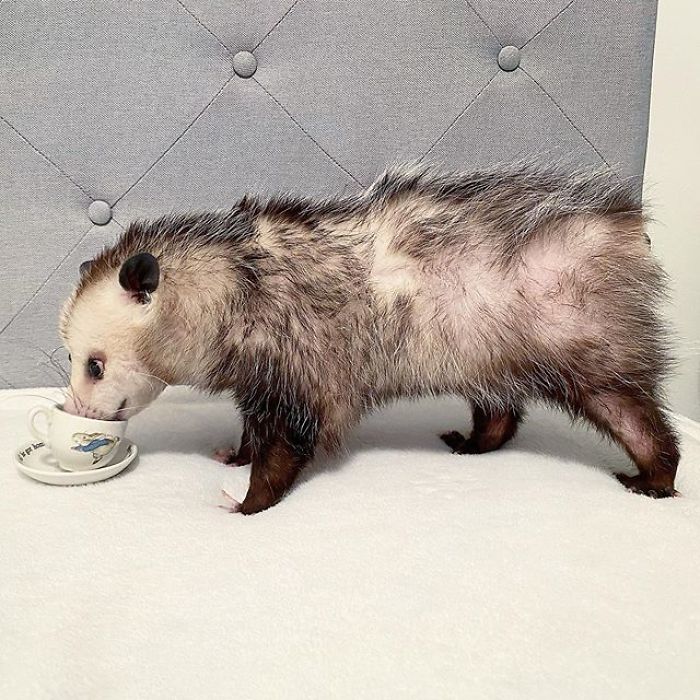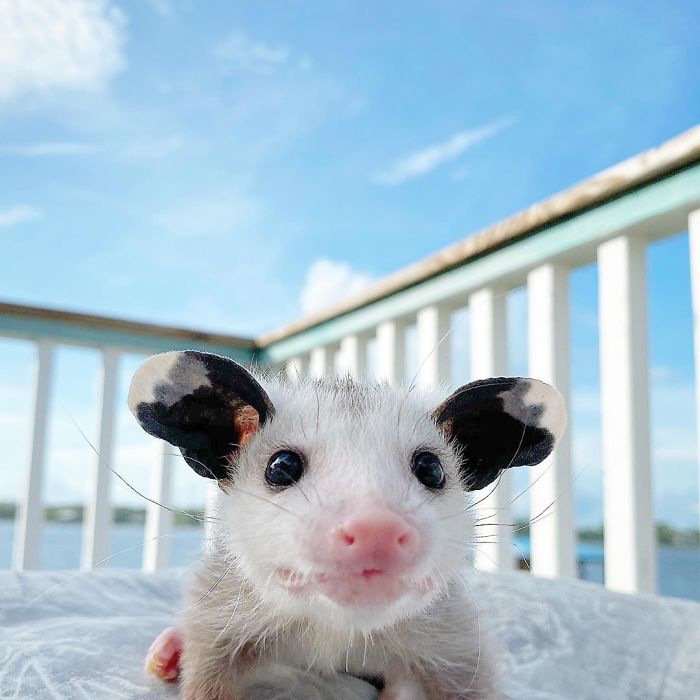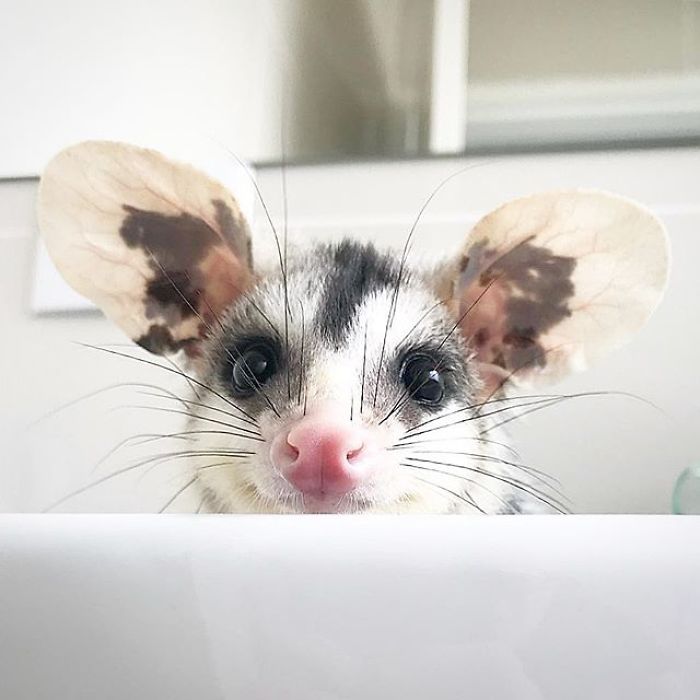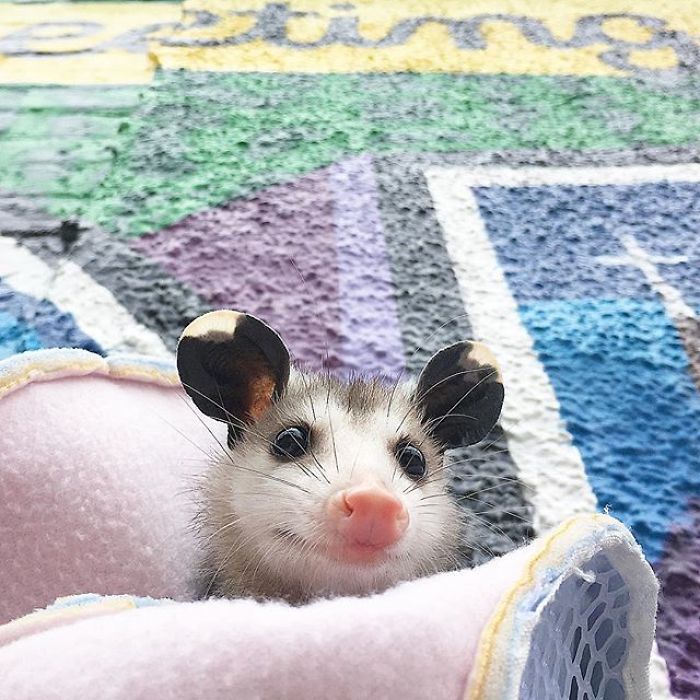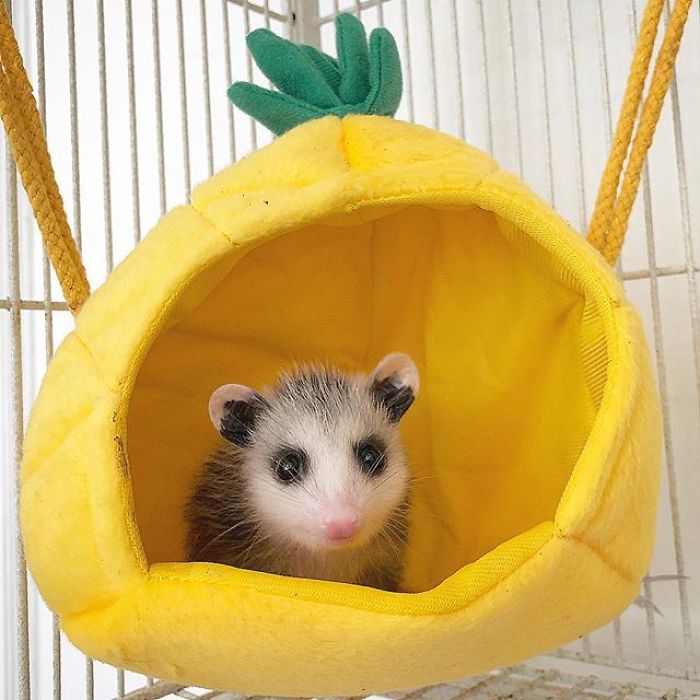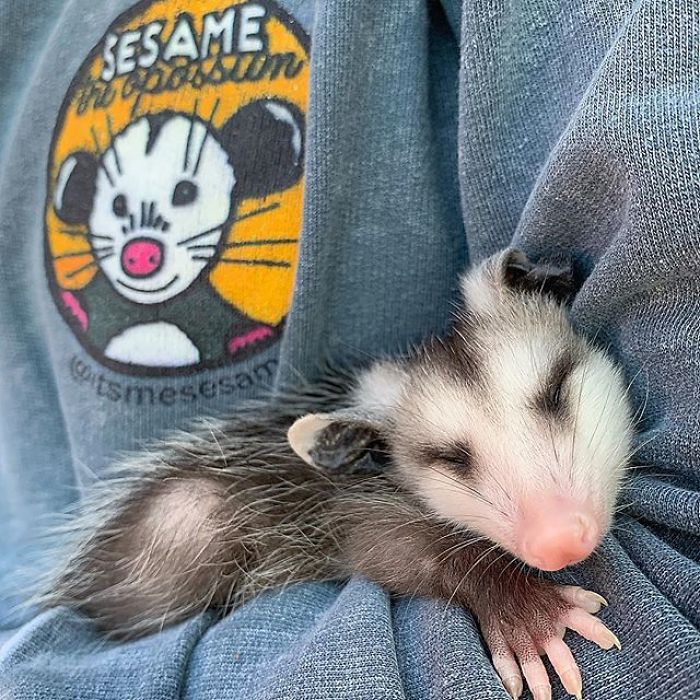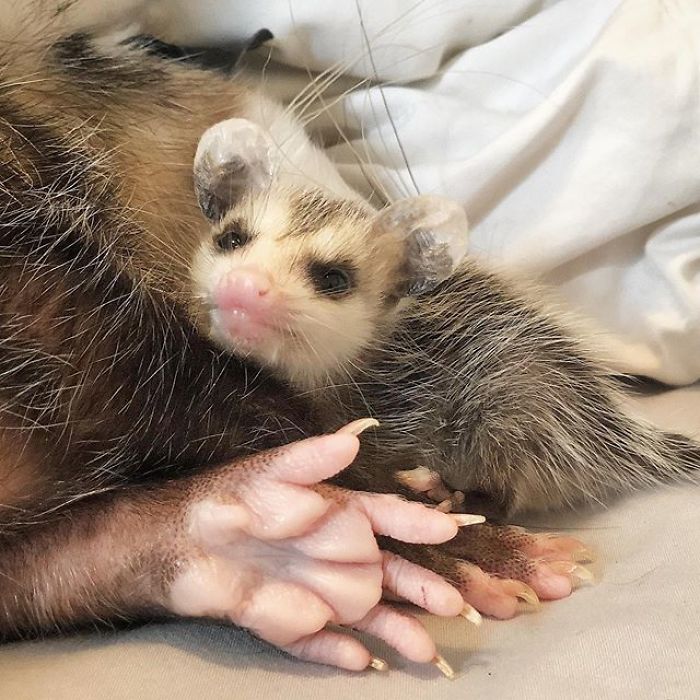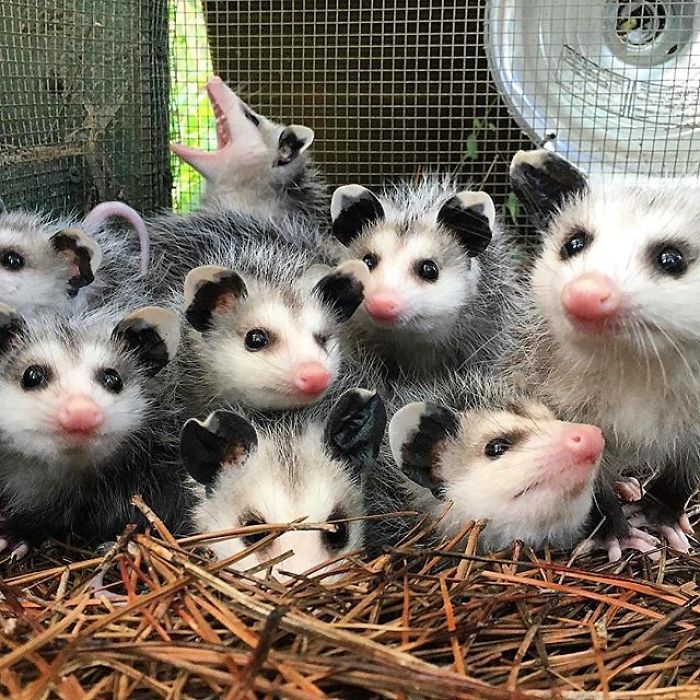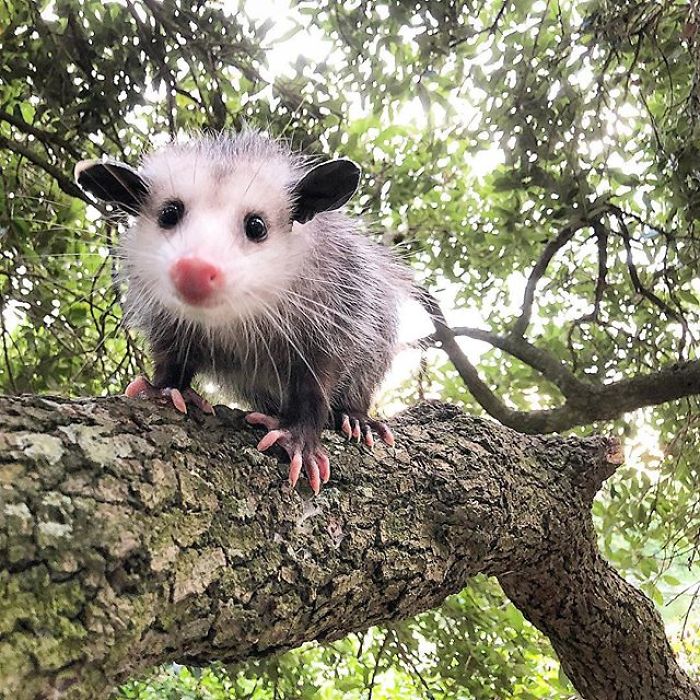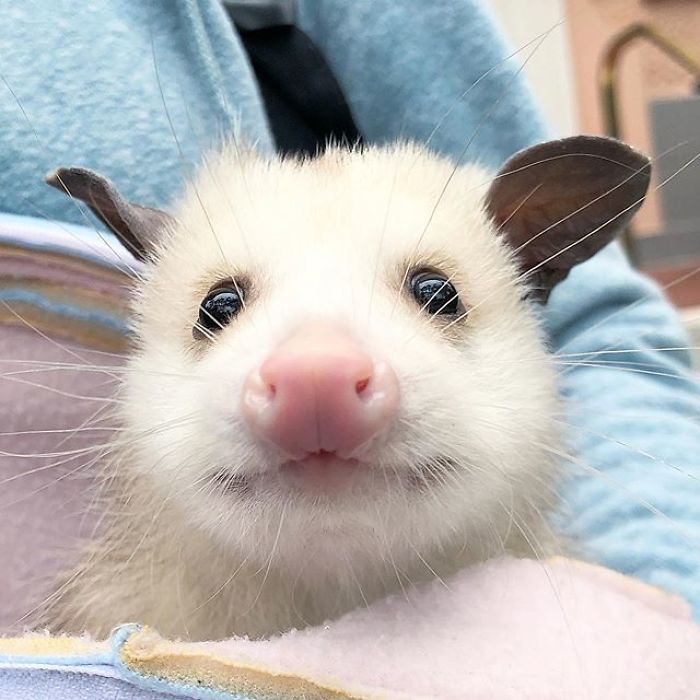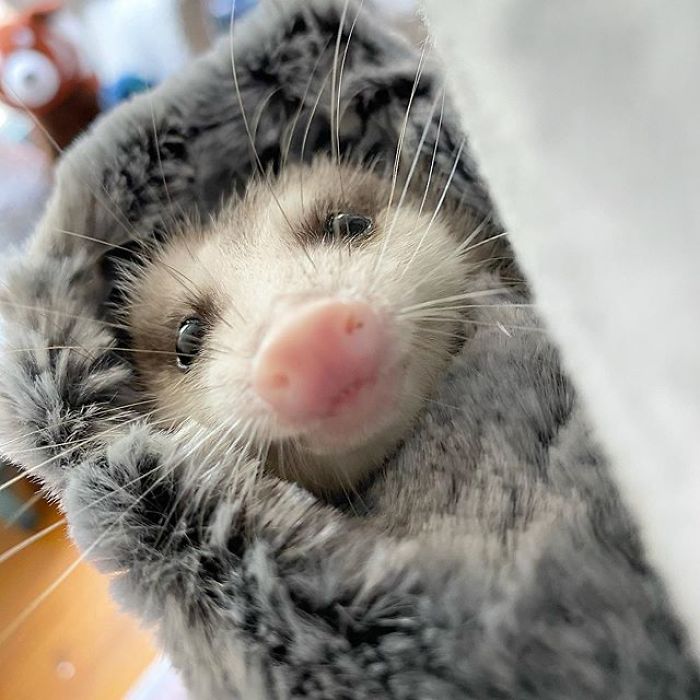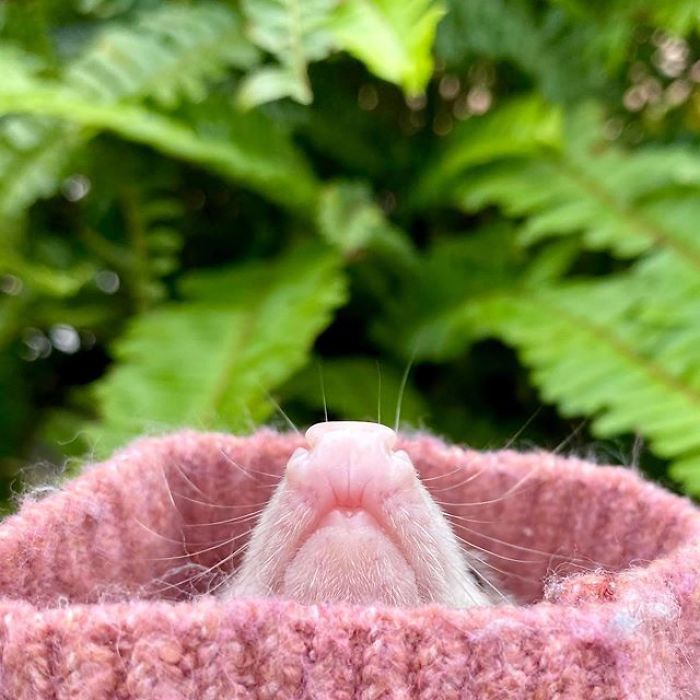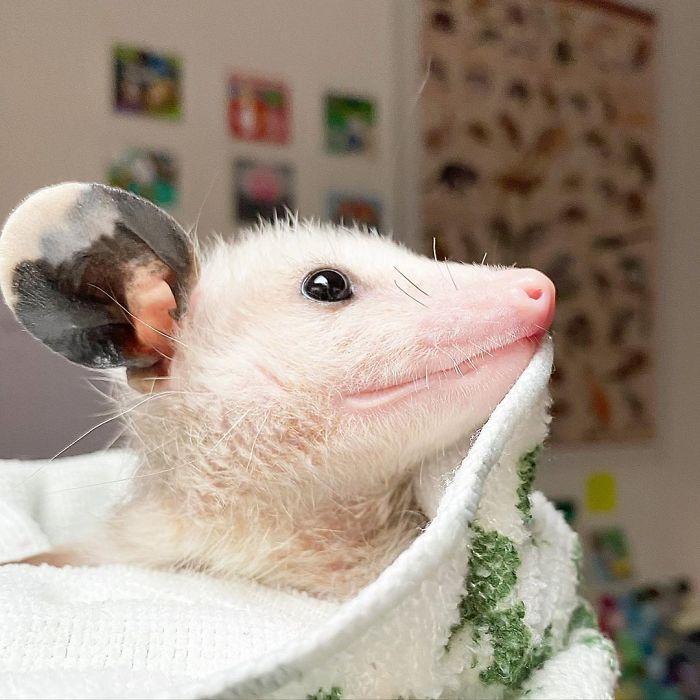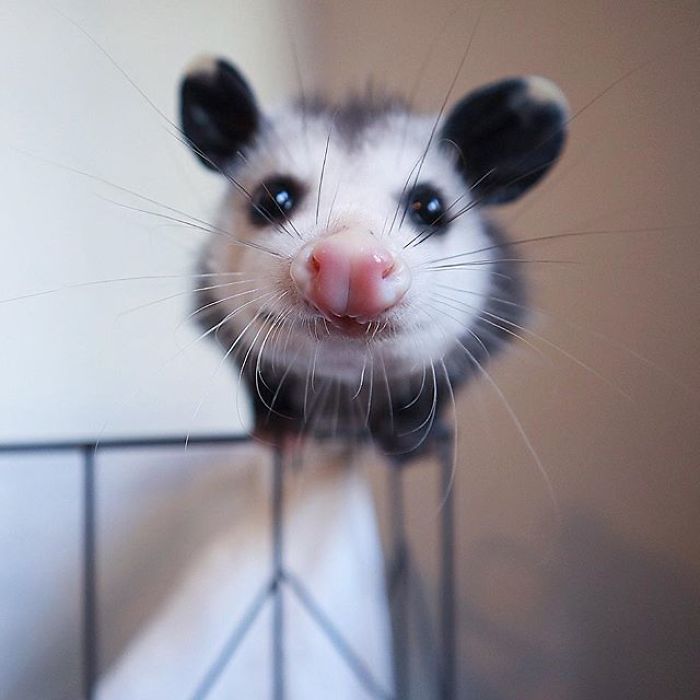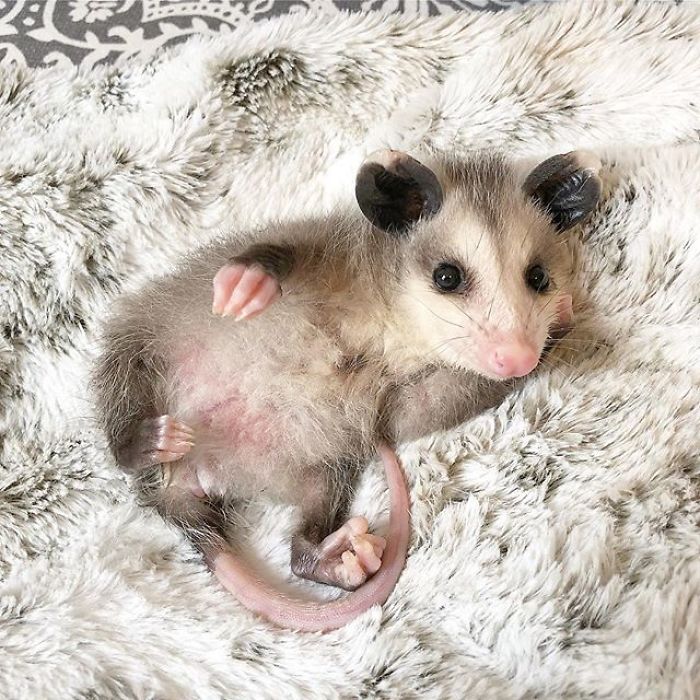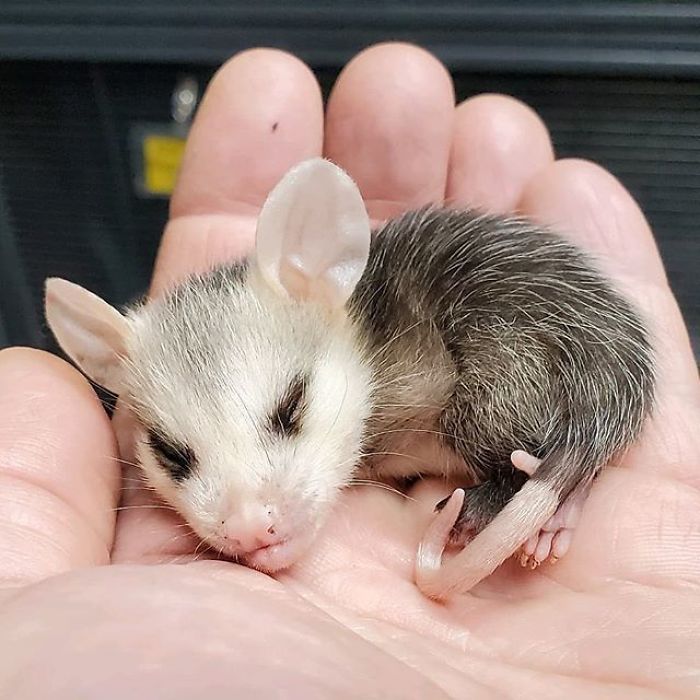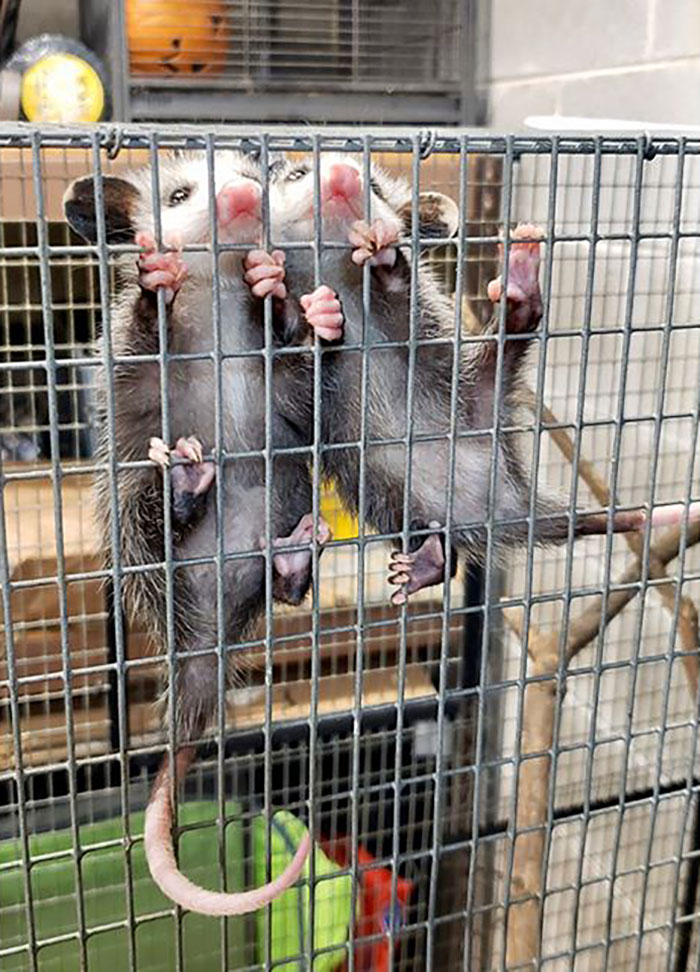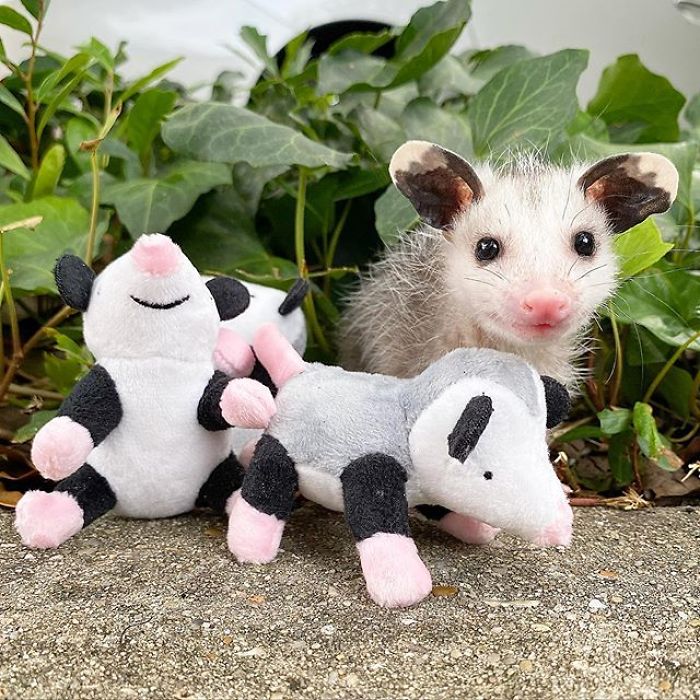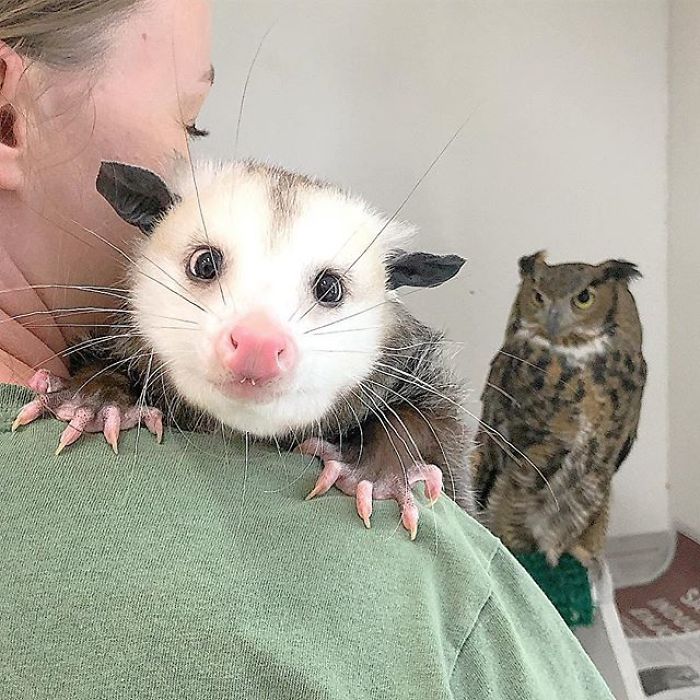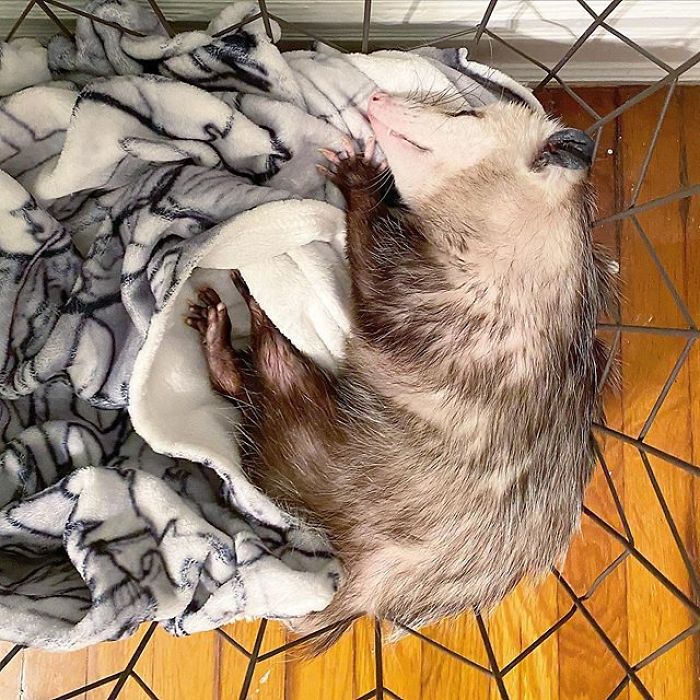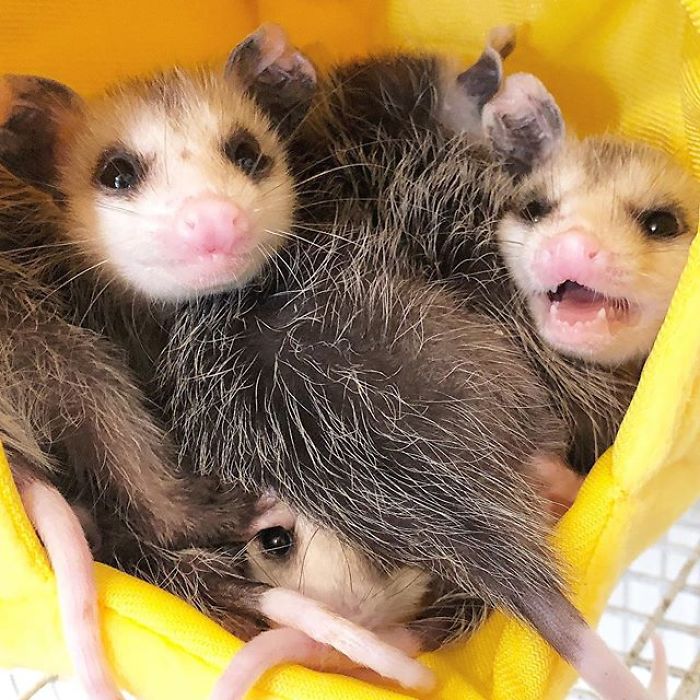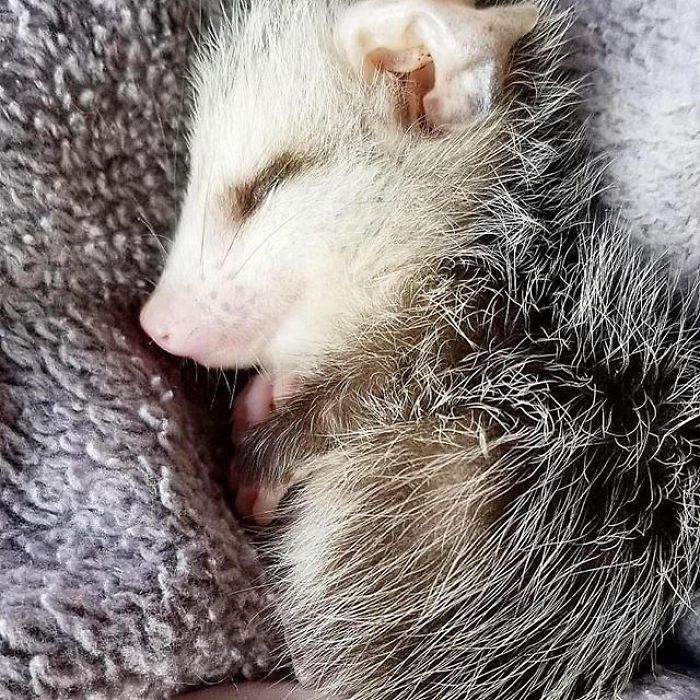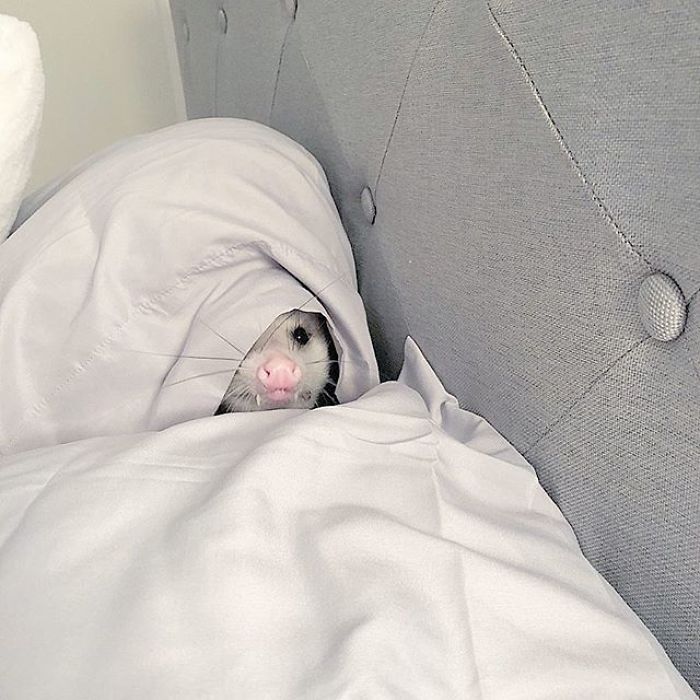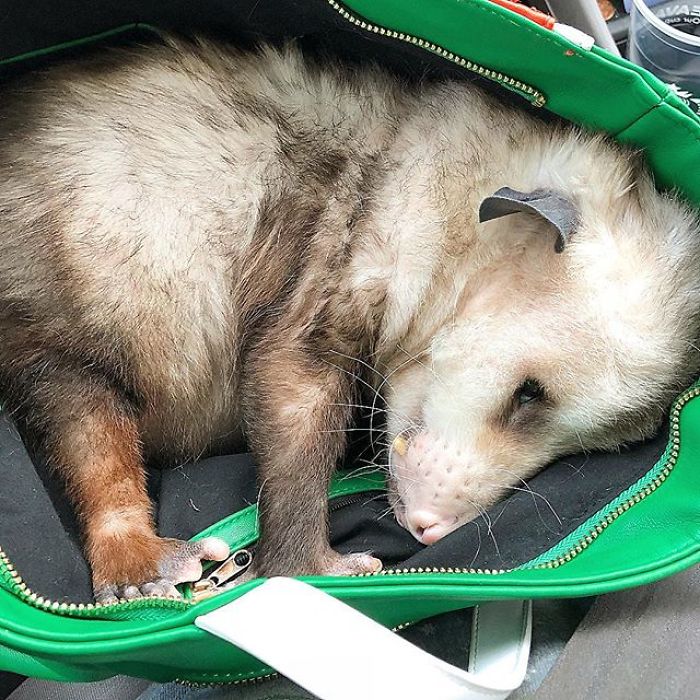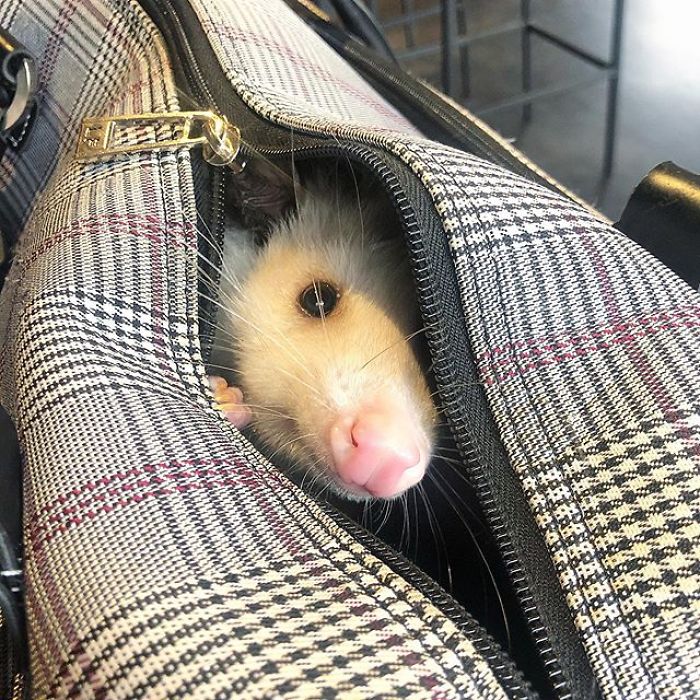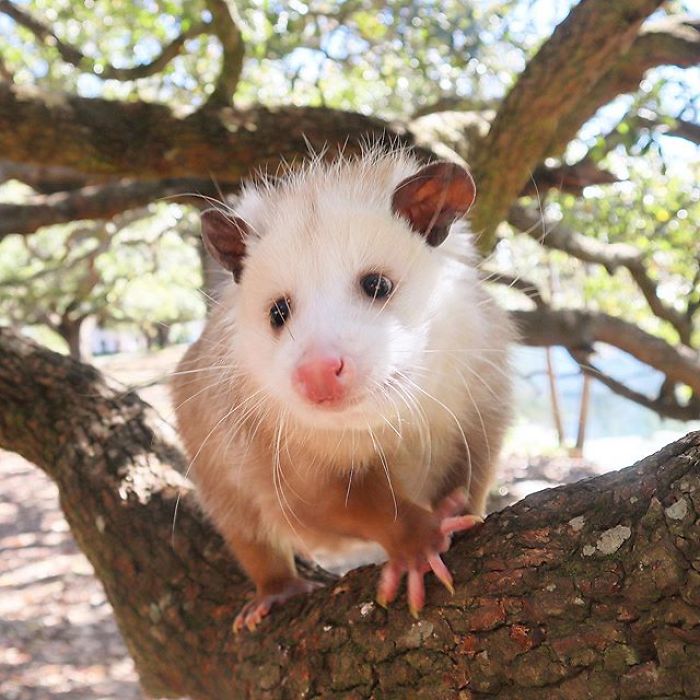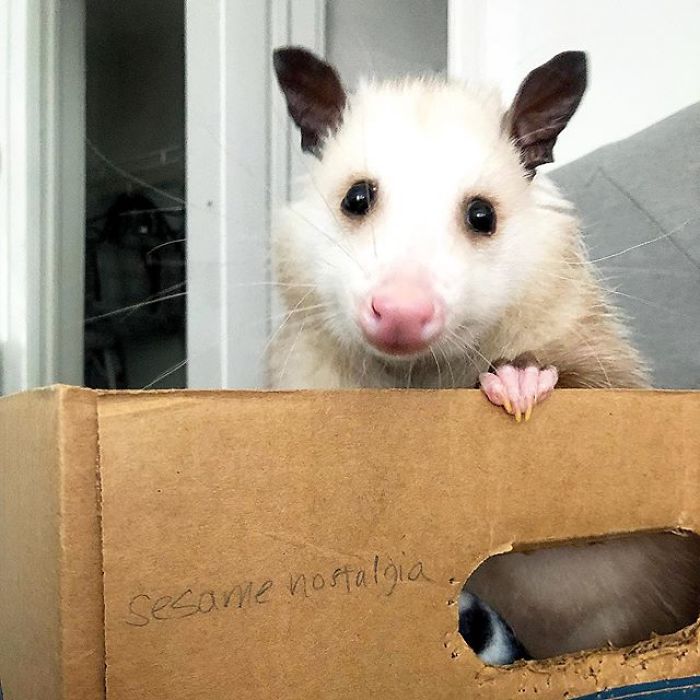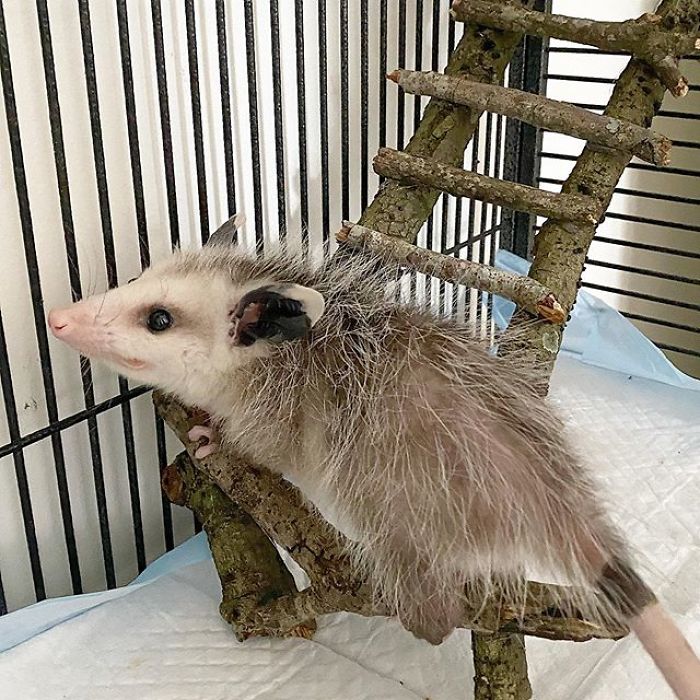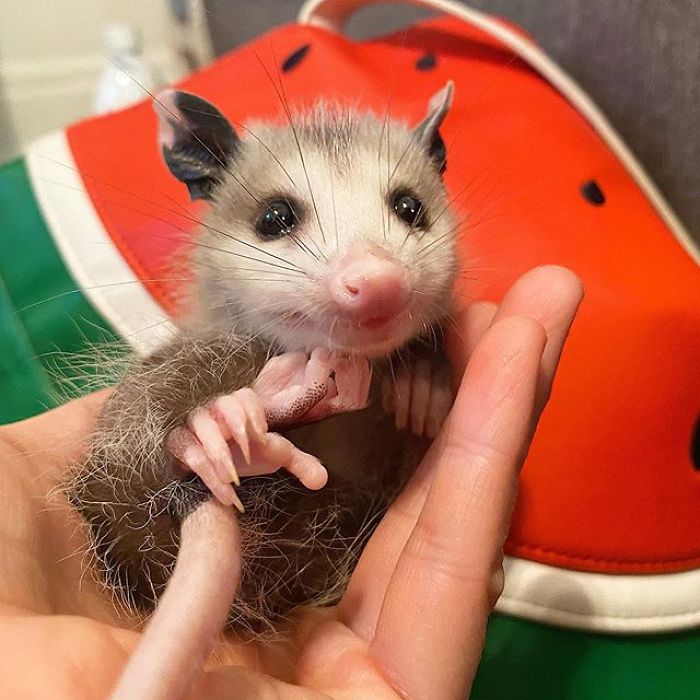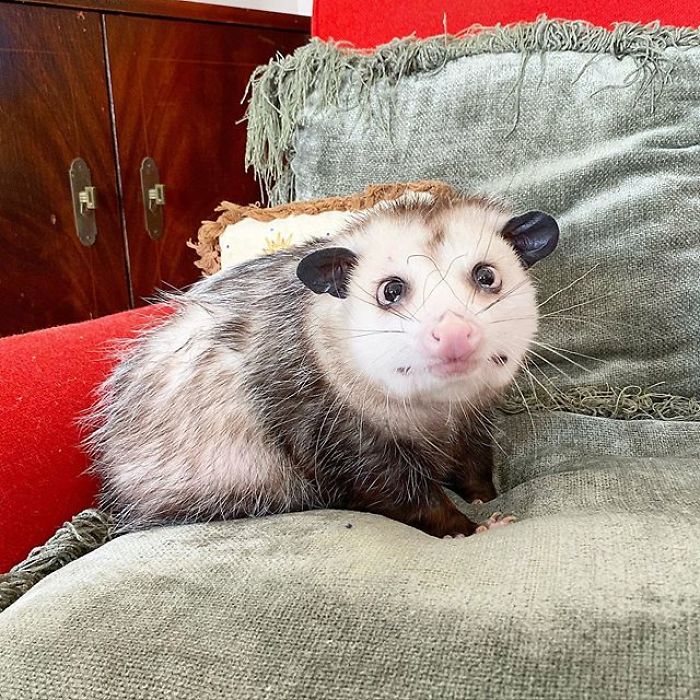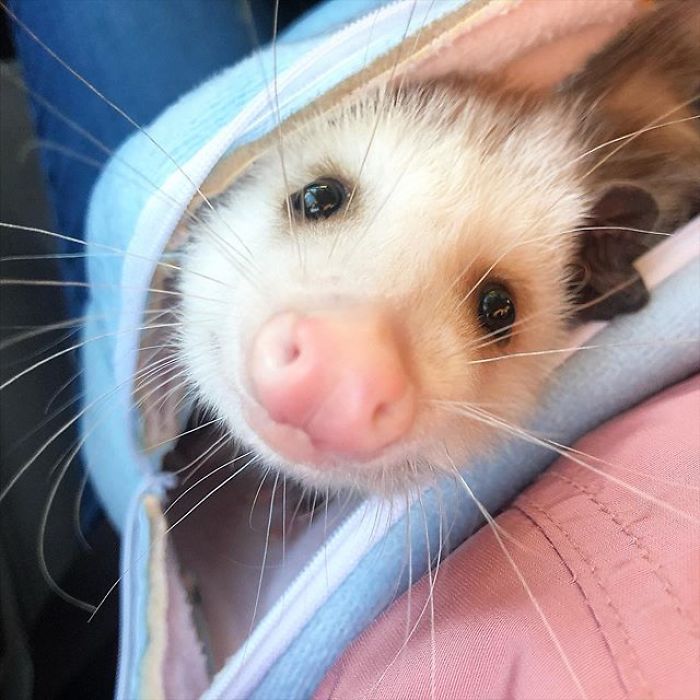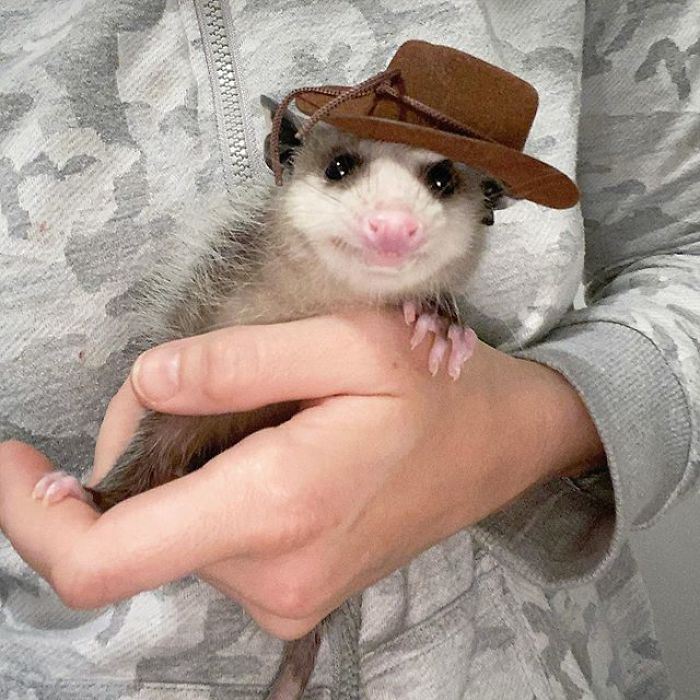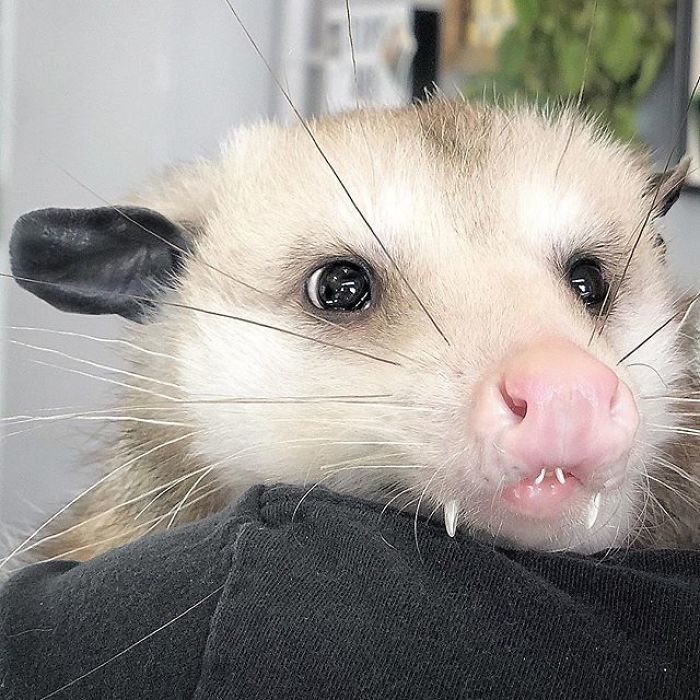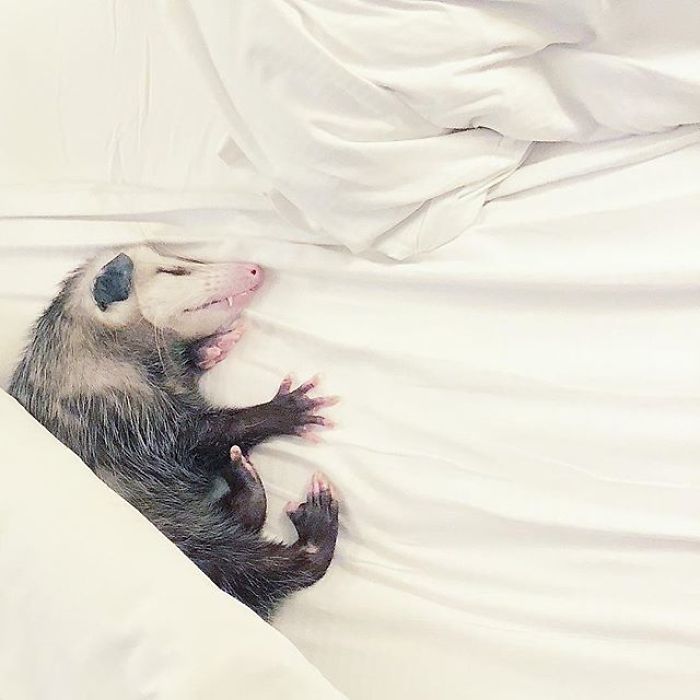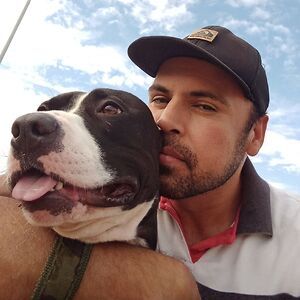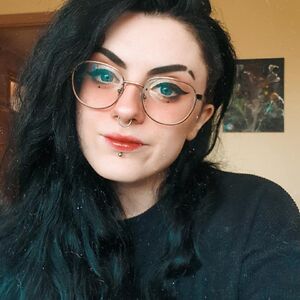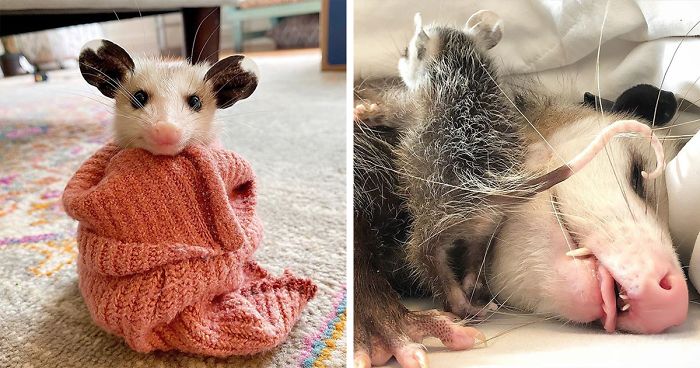
If You Think Opossums Are Scary ‘Pests,’ These Rescue Opossums May Change Your Mind (40 Pics)
Some people keep strange pets. Like snakes, spiders, or other exotic animals. But what do you think of opossums as pets? Well, if your first thought was "eww," perhaps you will change your mind after you see the adorable critters in the pictures below.
An Instagram account called itsmesesame rescues and rehabilitates opossums and posts their progress. The photos are adorable and show you a different side of these animals that are usually seen as "pests."
"Our opossums are rescue animals—we always free them back to nature, except when they cannot survive in the wild. Two of mine are losing their tails and that is why they cannot be released and they love me as wildlife ambassadors. To inspire everyone to love and care for wildlife and the land," their owner Ally Burgueires told Bored Panda.
More info: Instagram | Facebook | itsmesesame
This post may include affiliate links.
On their website, itsmesesame, you can learn much more about the opossums and how they live their lives. They are quite popular, even starring in TV, newspapers, and having over 184k followers on Instagram.
Here are some fun facts about opossums: opossums are the only marsupials native to the United States, they are immune to snake venom and more resistant to rabies than other similar animals, and, of course, they are super adorable.
Many opossums live with Ally Burgueires; here are stories from two of them. First, some information about Sesame: "Even though we look oh-so-cute in jammies, it's important to note first and foremost that opossums deserve a life of freedom! When I was a baby, a dog found me and two of my siblings. My siblings ran right back into the wild, but a human came to see what the fuss was about and decided to take me inside to make me a pet! At first, things seemed great—who doesn’t like being hand-fed grapes? Unfortunately, I got sick since I wasn’t getting the proper nutrients. The woman who took me in was overwhelmed with the amount of attention I needed. She had thought I'd make a great pet, but didn’t realize that nature designed me to thrive best in the great outdoors. At this point, I had forgotten how to even live in the wild! We both grew sad, as it seemed I had nowhere to go—not a pet, but not a wild animal either. We were really in a pickle."
Sesame was then found by the current owner and rehabilitated back to health. He got all the nutrients he needed to be a healthy opossum again. "Even though my story is happy, I hope to remind people that the big wide world is the best place for an opossum. You certainly don’t want to take a baby from the wild, and then run into a VSP—a very sad predicament! Sometimes I dream about spending my nights wandering under the stars and maybe even having a few baby Sesames of my own that would look just like me. But I’m happy now to share a love of opossums with my human friends. I love encouraging people to care for animals and the environment, and inspiring them to treat wild babies like the beautiful, strange, and adventurous beings they are. The more humans take care of the Earth, the more wildlife will thrive and prosper." Sadly, Sesame passed away.
Here is the story of another opossum named Starfish: "My name is Starfish! I am Sesame's protege. Since Sesame passed, I use my iPad to send him emails and he wrote me back and told me I should say a bit about myself so everyone can get to know me. Welp, I have no tail. It was nipped by some baby opossums when I was a baby and the vet said it had to go! Ever since then my motto has been, 'No Cob, No Prob!' (Sesame always called his tail a corncob.) Since opossums are not 'pets,' the reason I stay at Sesame's house is that without a tail, I cannot do some of the things wild opossums need to do to stay alive. These things include carrying nesting materials to make a fluffy bed, balancing on tree branches in an acrobatic fashion, elegantly escaping predators in the fashion of parkour, and descending from trees without falling straight down and bonking my head. Staying at Sesame's Bed & Breakfast means I get to climb and exercise and have adventures while benefiting from a 'spotter' who can catch me if I tumble."
We asked the owners of the opossums some questions. First, they answered why they adopt these animals: "I adopted Starfish, Daffodil, and Cornelia because they are considered 'nonreleasable.' In wildlife rehab, nonreleasable means an animal who cannot be released back to the wild, even after they are rehabilitated. Starry and Daffodil both lost their tails as infants, and an opossum’s tail is an important tool for their survival outdoors (they use it to balance, grip branches, and carry nesting materials.) Cornelia is nonreleasable because she is leucistic, which means she has decreased melanin and special health considerations."
"I’ve always loved opossums! When wildlife is nonreleasable, it is a very tough situation. Nearly all wild animals live their best lives in the wild, and opossums are no exception. They love being wild! Fortunately, opossums adapt easily and can thrive indoors (though not in cages) with the right diet and care, and I knew I could provide that for them (mine live like cats, with free run of the house.) An added bonus is that my babies’ sociability and love for people makes them great ambassadors for their species! By being so close to us humans and letting us get to know them (whether in person or social media), they encourage people all over the world to care for their wild cousins."
We asked how many opossums they currently have: "3—Starfish, Daffodil, and Cornelia! I am also rehabbing a baby called George. He will hopefully be released to the wild, but we are waiting to see how his rehabilitation goes."
"During the baby season, there are always tons of babies! So along with partners who have prerelease enclosures, I would say we’ve released a few hundred! The rehab enclosures can get very full of babies ready to get out in the wild and eat ticks, snails, and do their environmental 'cleanup' work. Baby season is typically early spring and late summer," said the owners when asked how many opossums they have helped and released into the wild.
"Opossums are a lot like cats in some ways! Mine have free run of the house and are litter-trained. They nap a lot! They love to snuggle and are affectionate, but also independent. It’s a joy to see them explore and discover new things. The nonreleasable adults form wonderful bonds with humans, and the babies, even the ones who are ready for the wild, are super funny. The babies are always climbing, running on their wheels, eating new things, and have a real zest for life."
Good night, sleep tight , don't let the ...................a............ goodnight precious.
"I love getting to know each of their personalities. It’s also really fun to see a new side of nature—to feel so close and connected to wildlife is really special. My least favorite part would have to be their meticulous diet. They are able to eat almost anything as a 'treat,' but they need a very carefully balanced 'main' diet in order to avoid illness. It’s constant work keeping them healthy, and it’s difficult for even the most experienced and educated rehabber! This is why I’m very careful to say opossums aren’t pets—mostly because it is absolutely devastating to see someone take in a baby opossum only for the baby to get very ill and pass away, even when the rescuer was just trying to save them. The best way to rescue an opossum that needs help is to get them to a rehabber ASAP. And people who are really in love with opossums can become rehabbers themselves—that way they’ll have the experience and information when the time comes to help!" shared the owners when asked what their favorite and least favorite parts of raising these little critters are.
We asked if there are any other animals they help rehabilitate: "I stick mostly to opossums. Sometimes I will help a rehabber friend out with squirrels or other wildlife. I haven’t worked with animals who are considered 'rabies vectors,' mostly notably raccoons and bats, because they require an extra special level of caution and care. They are adorable and important animals, though. I’m so happy there are rehabbers who specialize in helping them! Opossums have a low body temperature that makes them extremely resistant to viruses like rabies and that is why they are not classified as a rabies vector species."
The owner tells us more about what they do for a living: "I work as an artist and designer for a living! I have three shops in New Orleans (one called Gallery Burguieres and two called Cocoally) that I own and operate with my sisters. Almost all my art is animal-themed, so, of course, opossums have been a favorite to appear in my work for the past few years. We have online shops at galleryburguieres.com and cocoally.com, and I also have a merch shop for Sesame the Opossum products at itsmesesame.com. Two of my rescue opossums who are now in the wild—Dippindot & Chupachup—have an 'Art Museum' filled with small original paintings that go on sale about once a week. I’m excited that these have been really popular and sell out in minutes! New ones go up on our Instagram and Facebook with the link to view and purchase on the Sesame site. It’s been such a delight and so much fun to combine opossum rescue with painting and a passion for art."
"My passions are animals, language, writing, and travel. I try to incorporate all these into my rehab work and advocacy for opossums. I have my Ph.D. in linguistics and love learning about languages and cultures. Having the Sesame the Opossum social media community has been really fun in that we have followers from all over the world, and I get to hear what they think of American wildlife and their perceptions of opossums in particular. I also learn fun things regarding language. One of my favorite facts is that in German, opossums are called Beutelratten, which translates to 'pouch rats.'"
"Education and awareness have made such a difference in my life, and I like to give back by providing information and new perspectives for others who love animals and want to help. I have been vegan for many years, and it’s really nice to see that mainstream culture is becoming more aware of animals and our treatment of them. It’s going to take a big societal shift to get to a point where we as a species treat animals with compassion, and I like being part of the change toward that future. I’m excited because it seems like the younger generations are making the connection more easily and are embracing lifestyles that are kind to animals. Our daily buying and eating habits have a profound effect on the animals who are bred and killed, in addition to the wildlife whose forests are cleared for cattle grazing and animal agriculture. It’s all interconnected, and little changes in our choices and lifestyles can make a big difference for animals and our planet in the long run!"
What do you think of these adorable animals? If you would like to know more, visit their social media accounts and website. Don't forget to vote for the cutest picture and leave a comment!
Silly me! I couldn't understand why the kiwi is so big compared to the animal...
The fortune teller read mama's palm. See? It says she will have many children.
I love all of them! Thank you for caring for them. All creatures deserve to have a chance at life.
I am so 200% with you...and they are sooooo cute...they look like fairy tale animals...I was doing awwwww sounds all the way down the post!
Load More Replies...Opossums are cute, and adorable, but if you're looking to get into rescuing them be aware that they can be disease vectors for things like tuberculosis and leptospirosis. You've gotta treat wild animals with respect and let them keep their distance and independence unless it's clear that they are in trouble. If you find a injured/orphaned wild animal the best thing you can do for them in most cases is back off, leave them alone for a while and make sure that they -are- orphaned. The next best thing you can do is contact someone with experience in rescue and handling of wildlife.
Aren't they relatives of the armadillo (or is that a myth? but Armadillos do carry leptospirosis).
Load More Replies...Beautiful, largely unappreciated animals. They are voracious tick eaters, too!
I love all of them! Thank you for caring for them. All creatures deserve to have a chance at life.
I am so 200% with you...and they are sooooo cute...they look like fairy tale animals...I was doing awwwww sounds all the way down the post!
Load More Replies...Opossums are cute, and adorable, but if you're looking to get into rescuing them be aware that they can be disease vectors for things like tuberculosis and leptospirosis. You've gotta treat wild animals with respect and let them keep their distance and independence unless it's clear that they are in trouble. If you find a injured/orphaned wild animal the best thing you can do for them in most cases is back off, leave them alone for a while and make sure that they -are- orphaned. The next best thing you can do is contact someone with experience in rescue and handling of wildlife.
Aren't they relatives of the armadillo (or is that a myth? but Armadillos do carry leptospirosis).
Load More Replies...Beautiful, largely unappreciated animals. They are voracious tick eaters, too!

 Dark Mode
Dark Mode 

 No fees, cancel anytime
No fees, cancel anytime 






